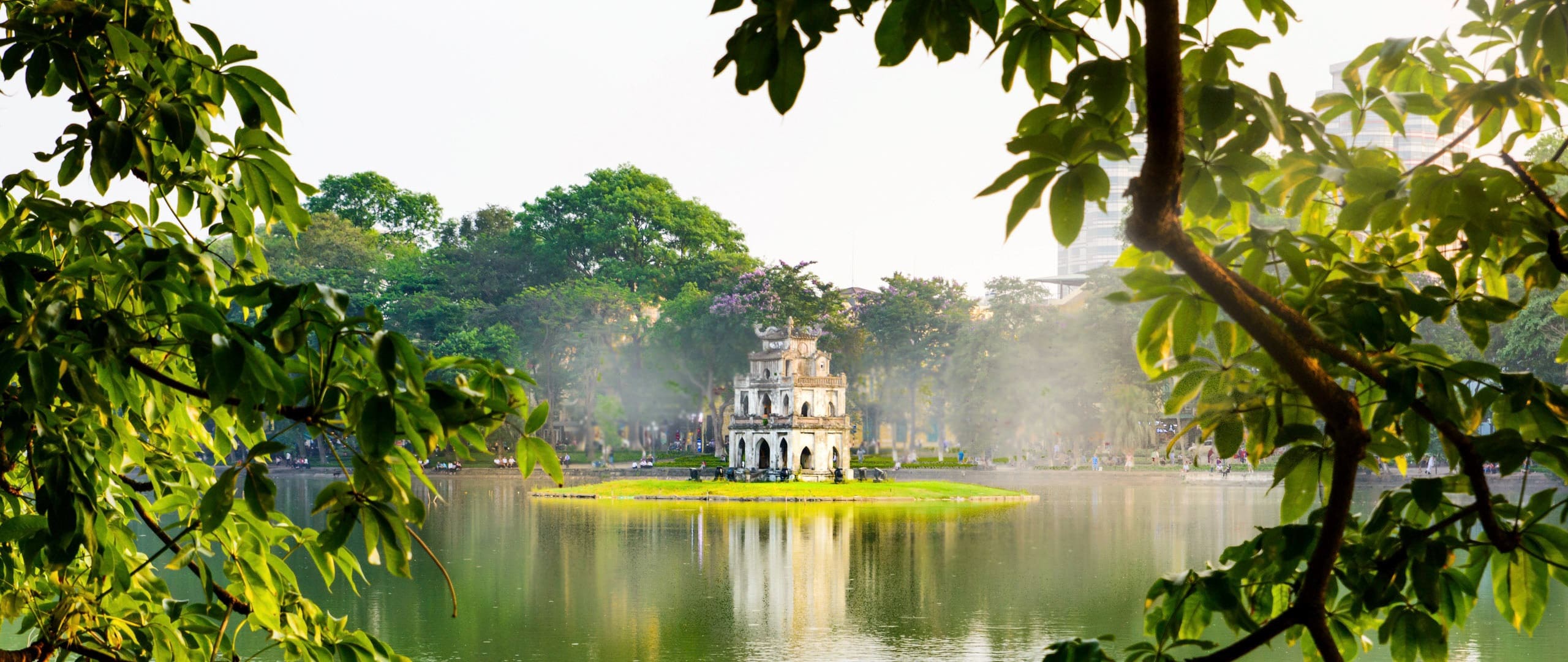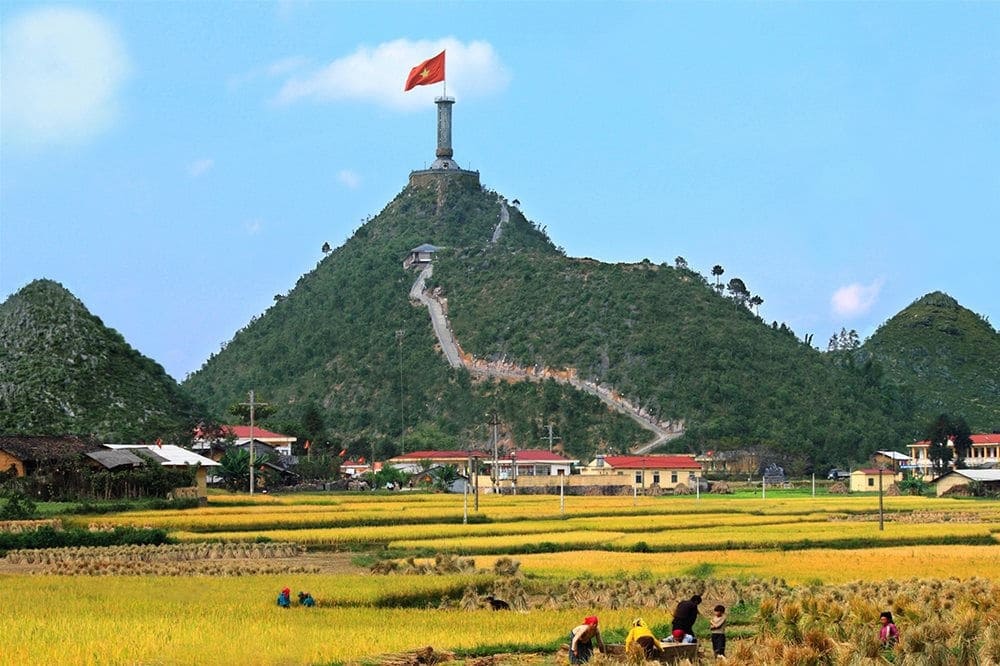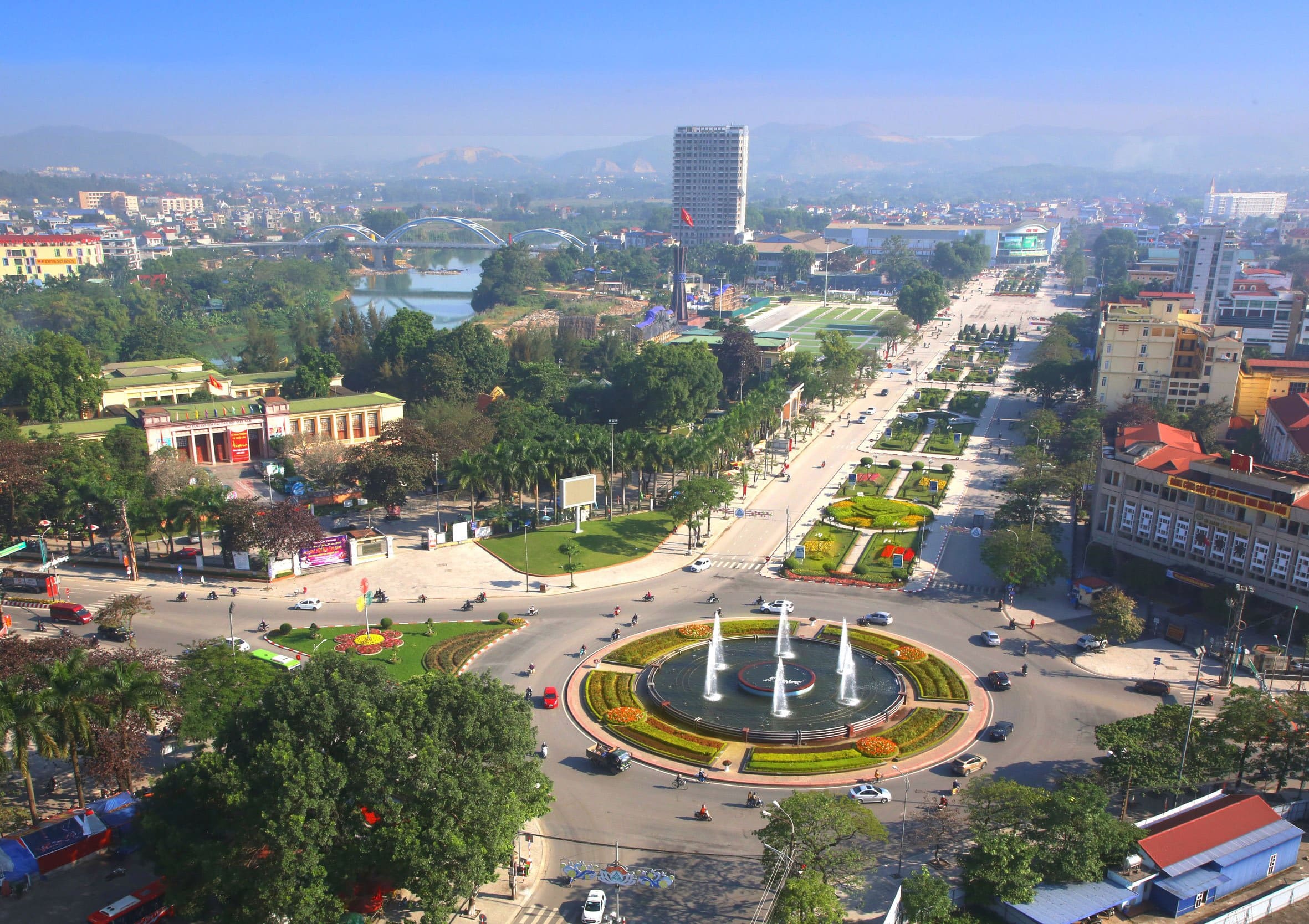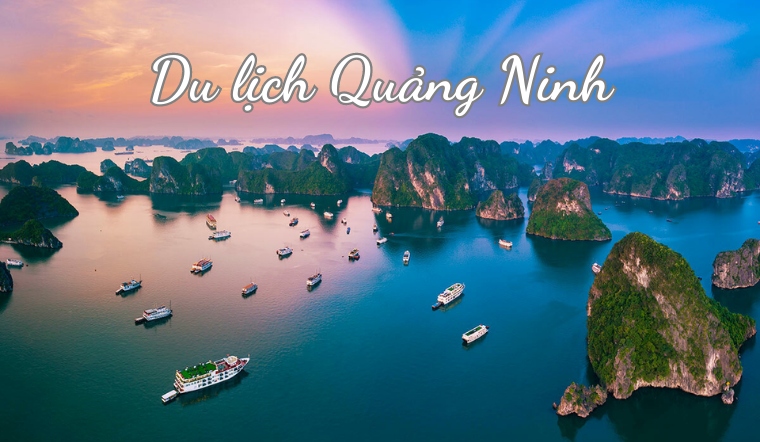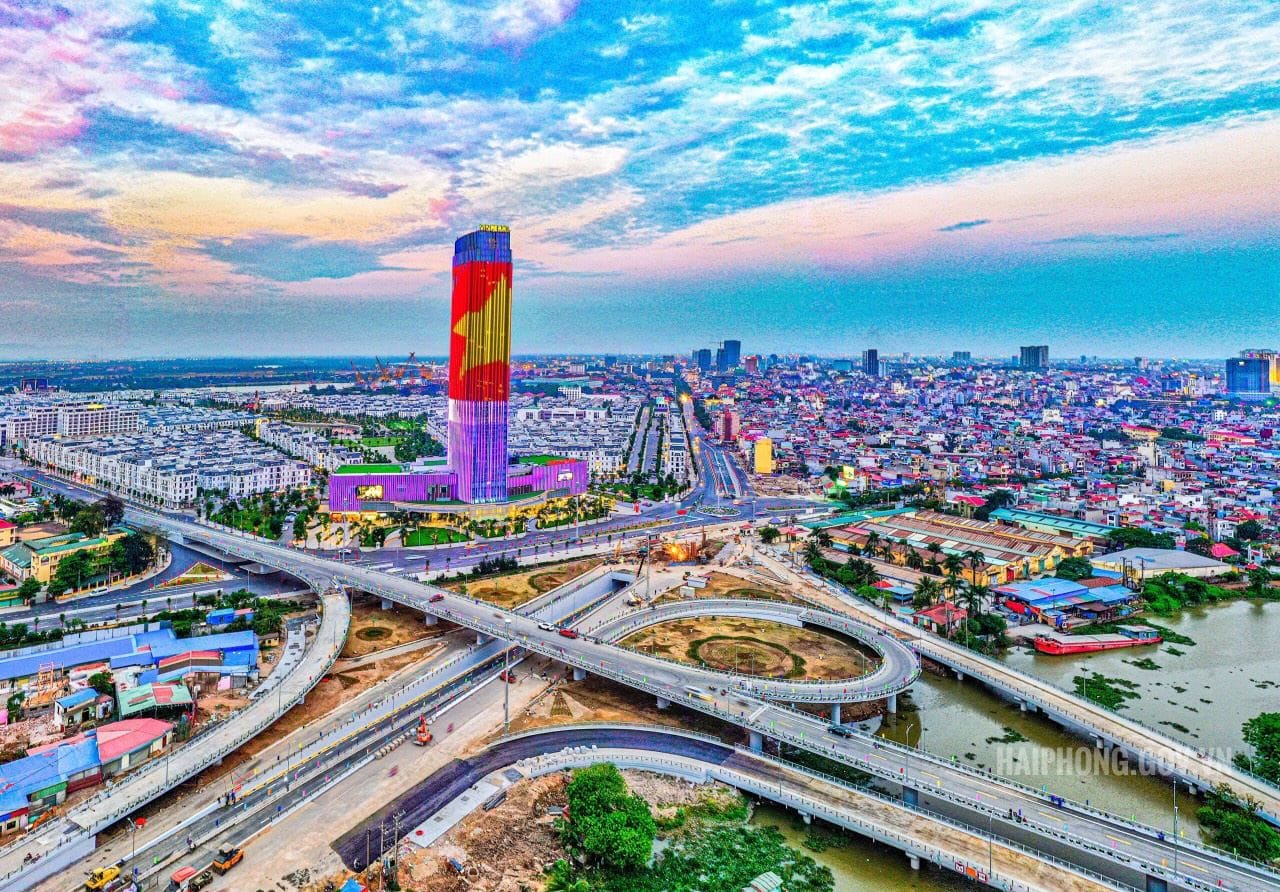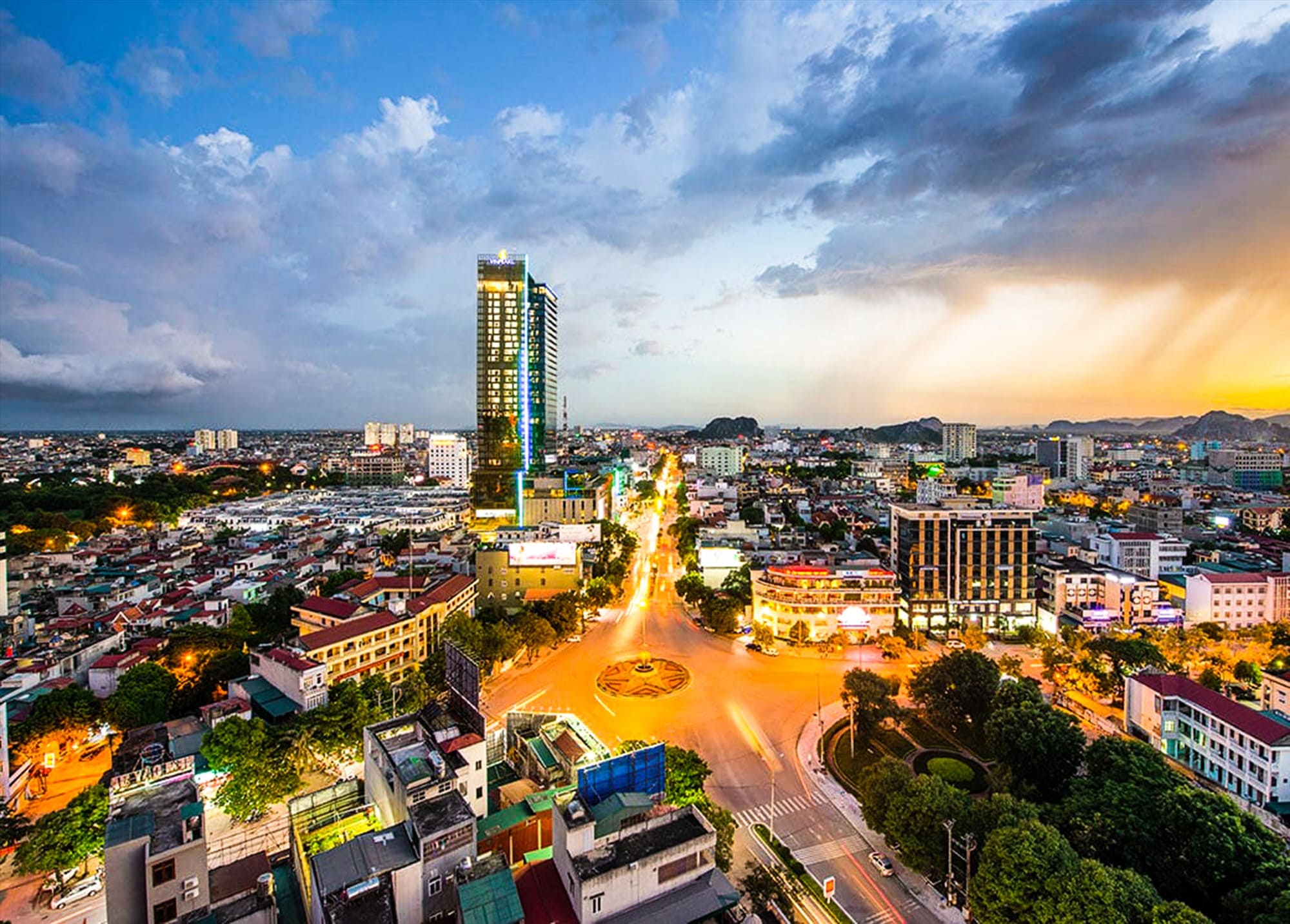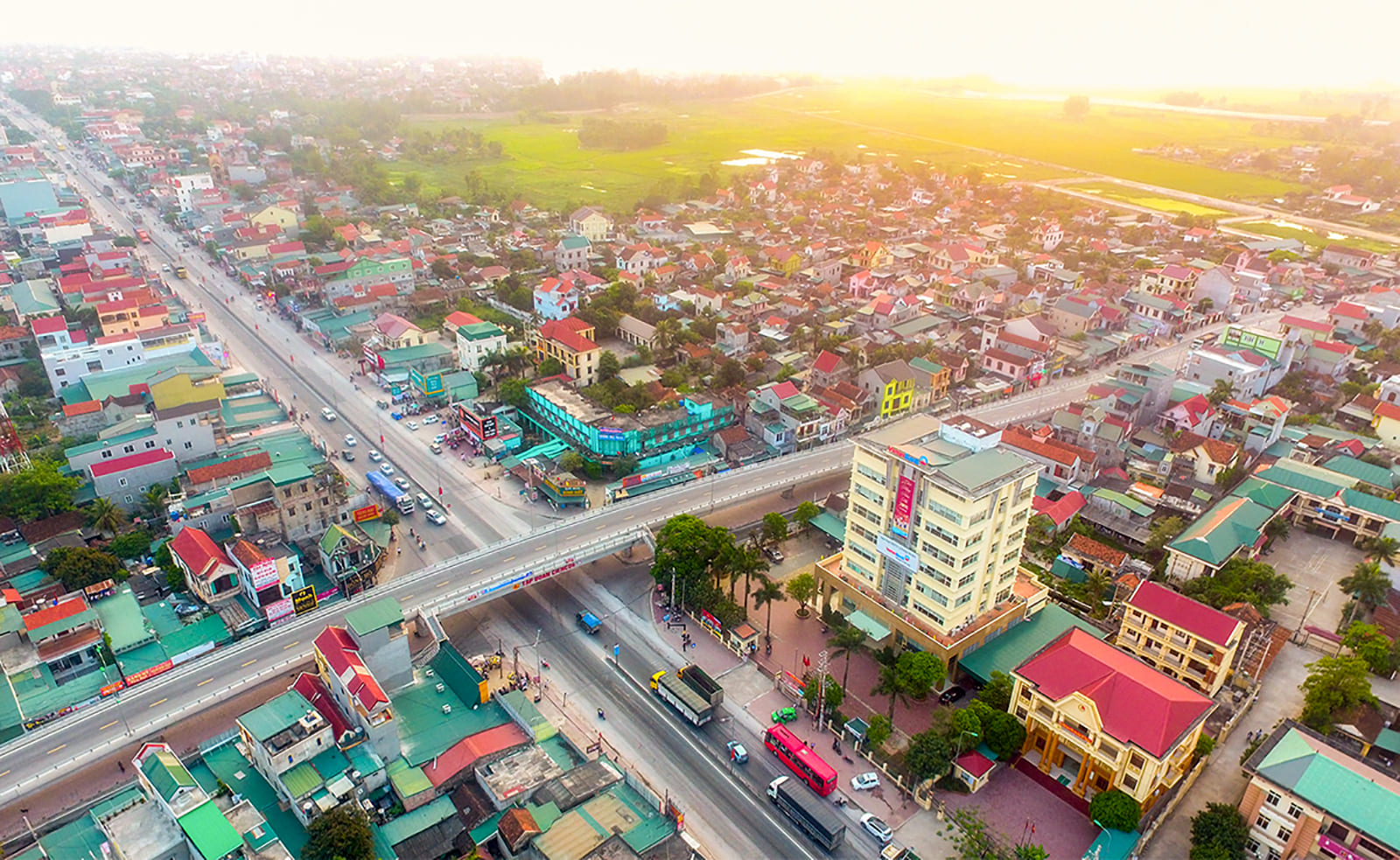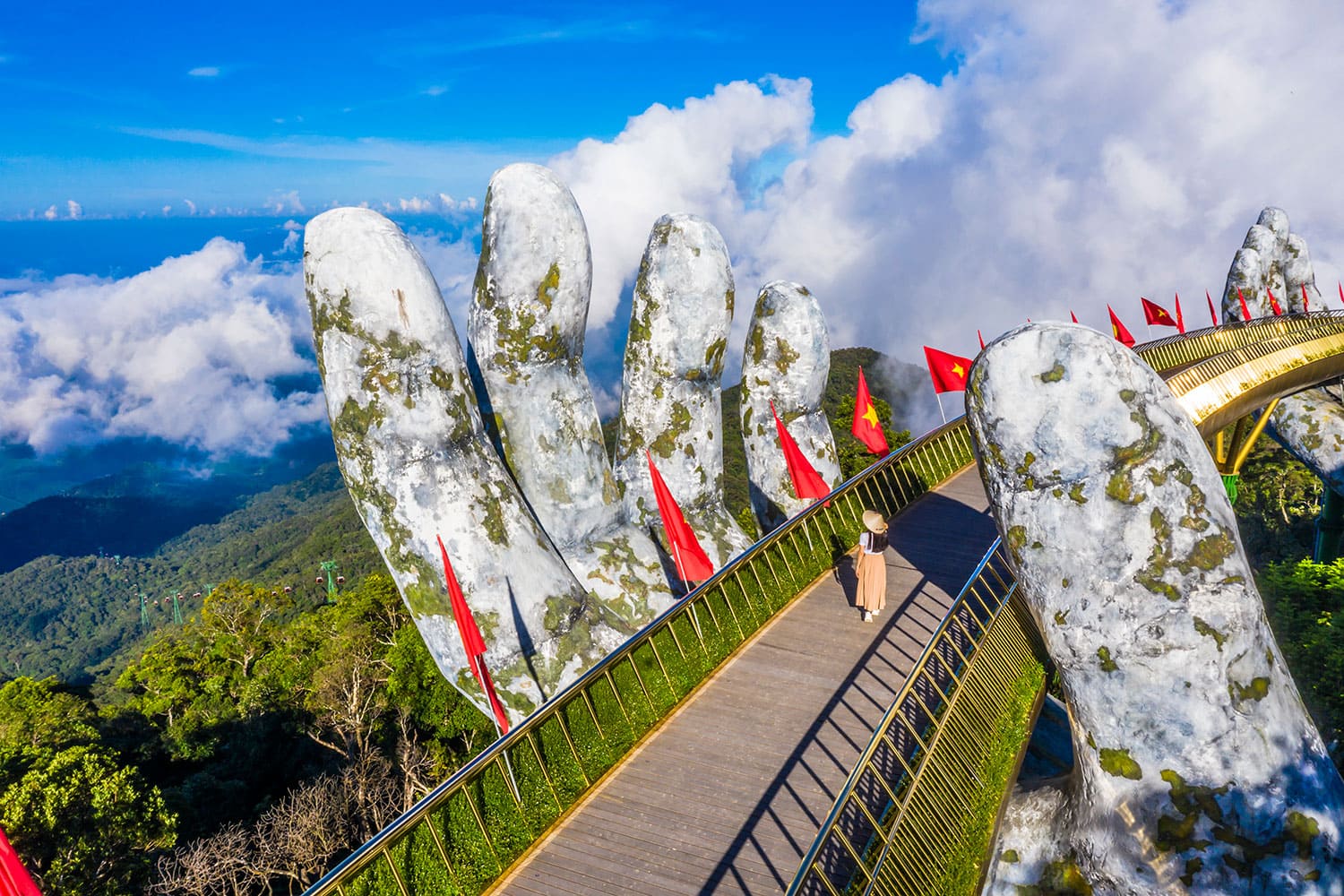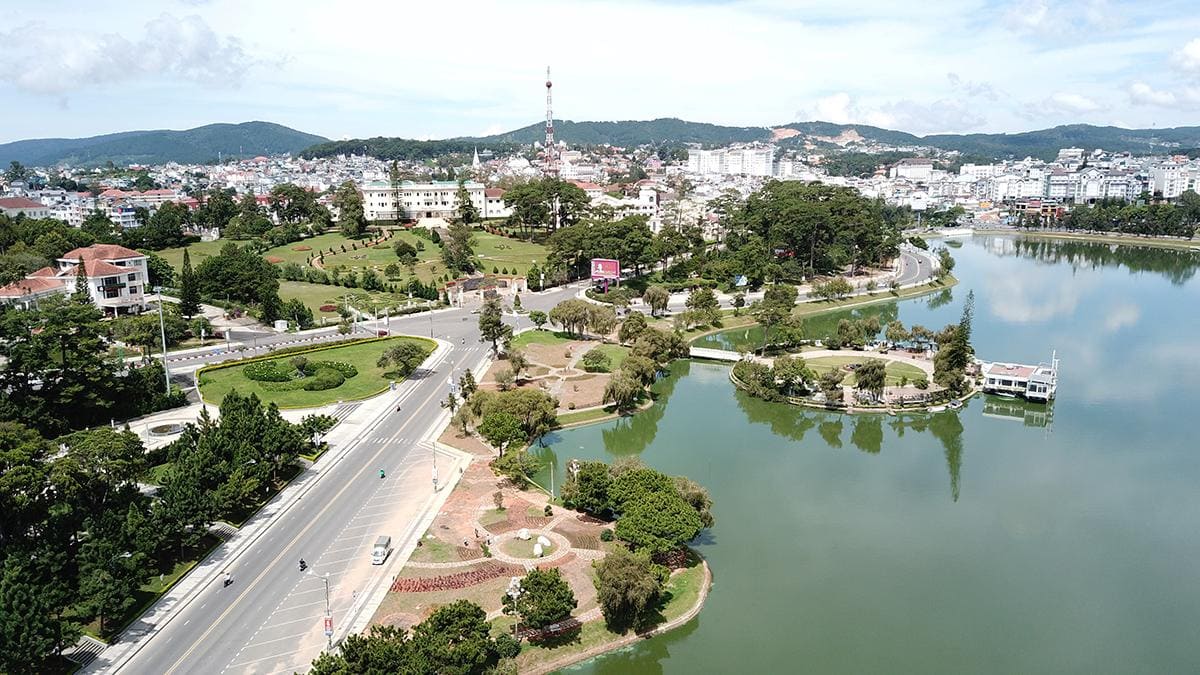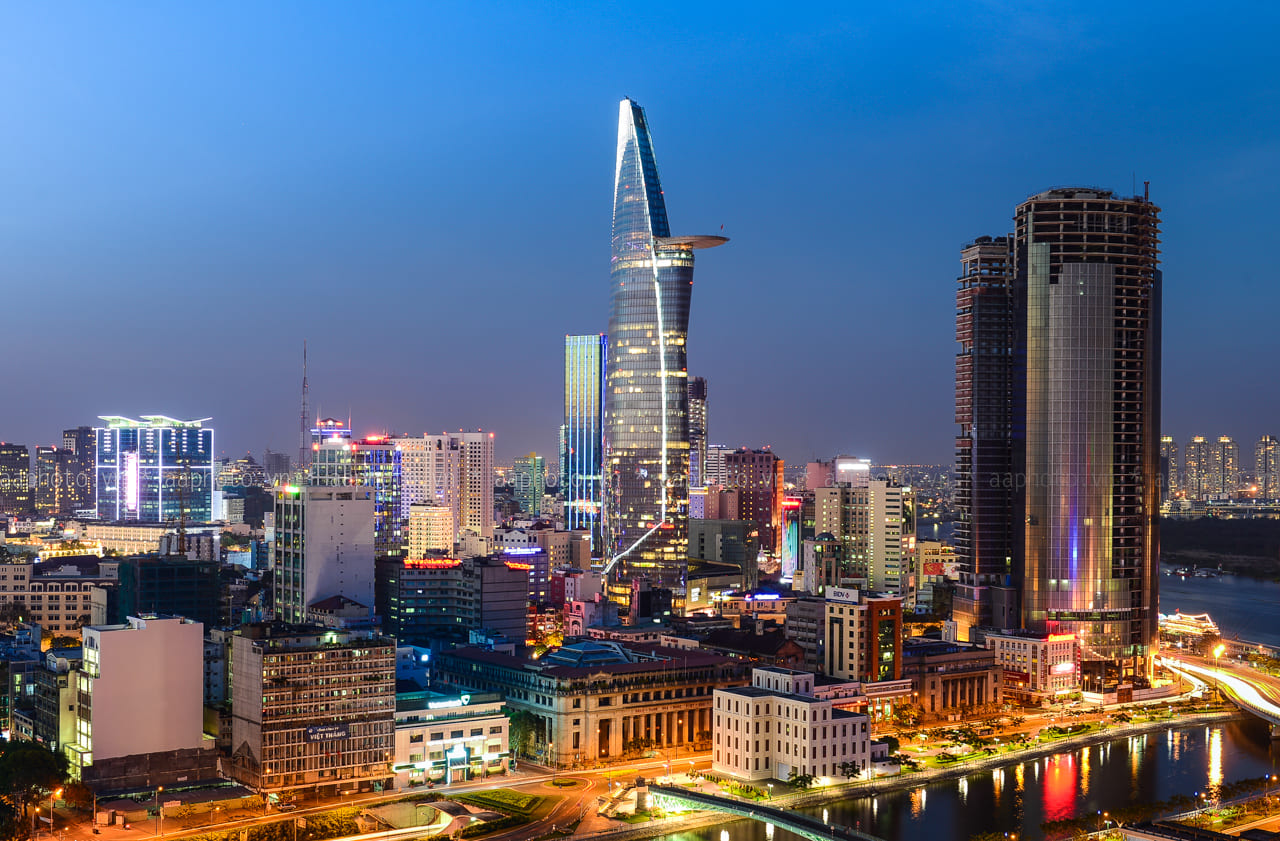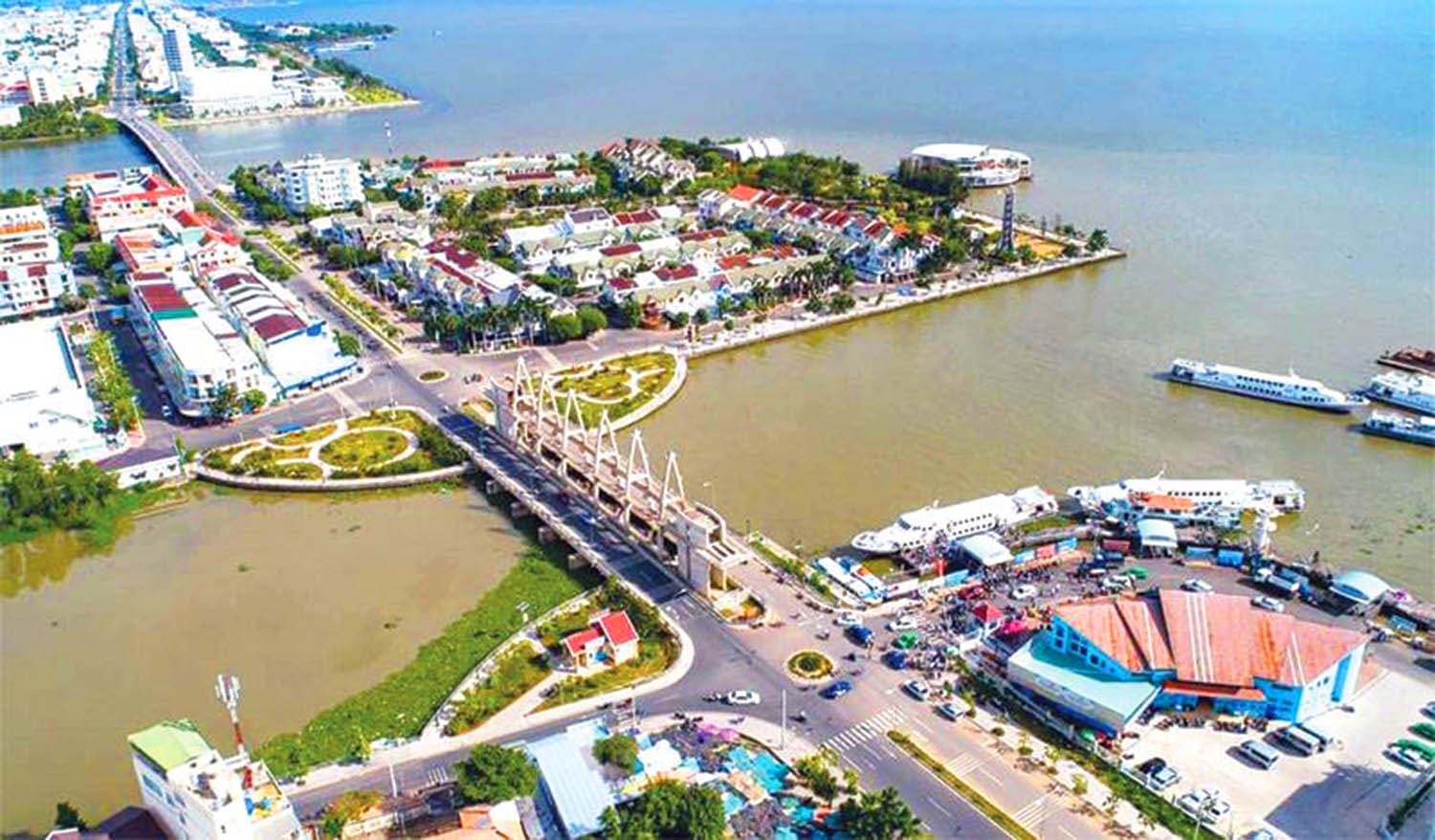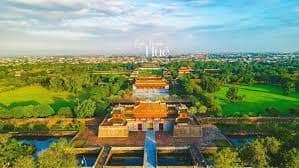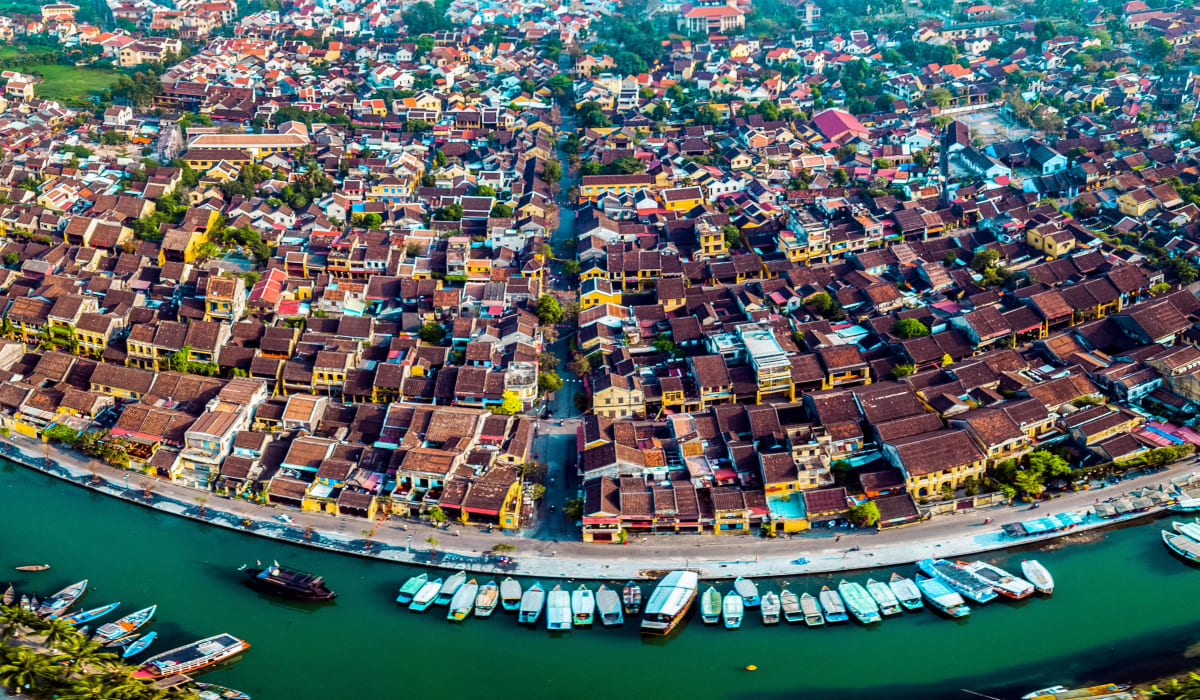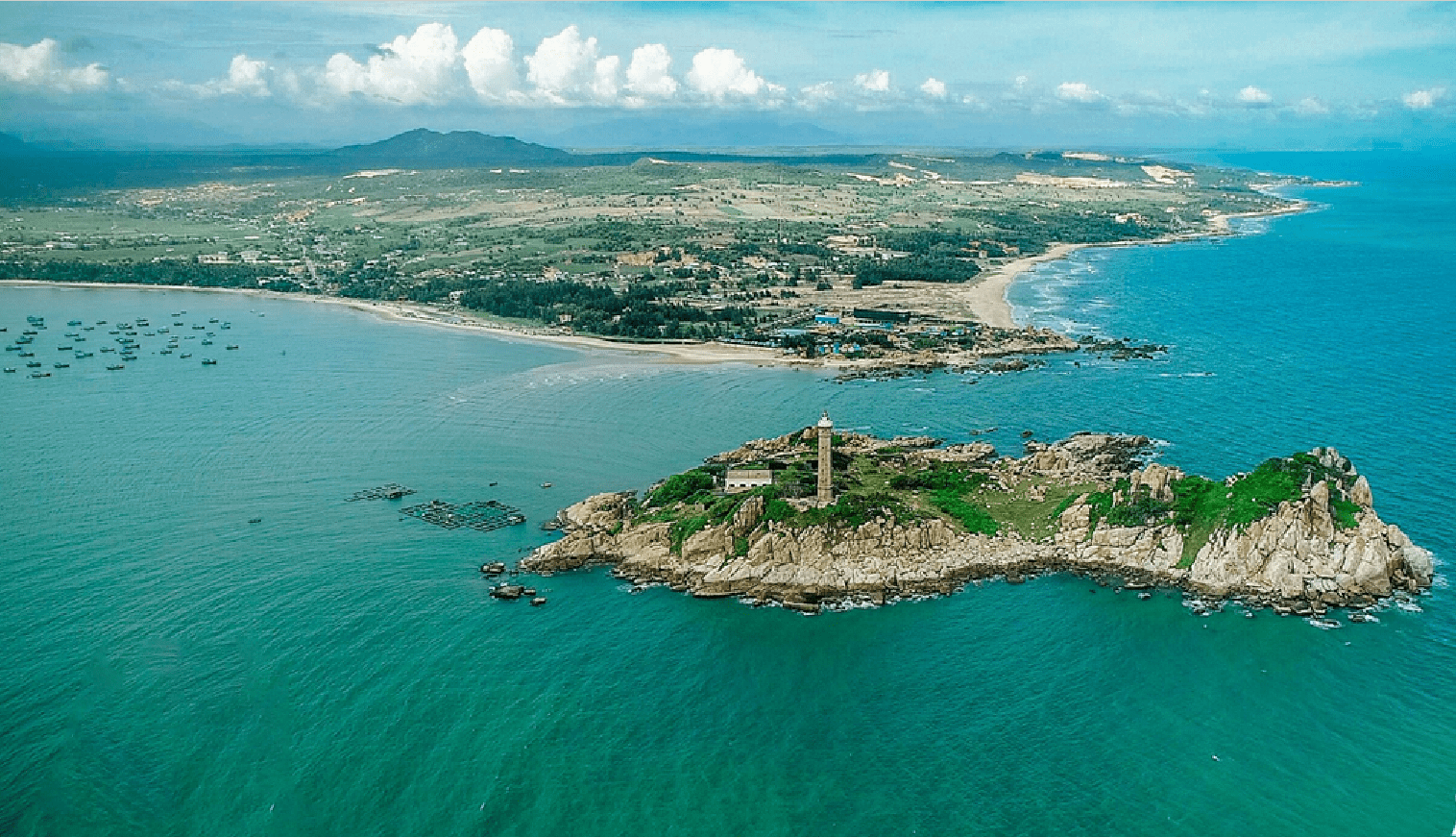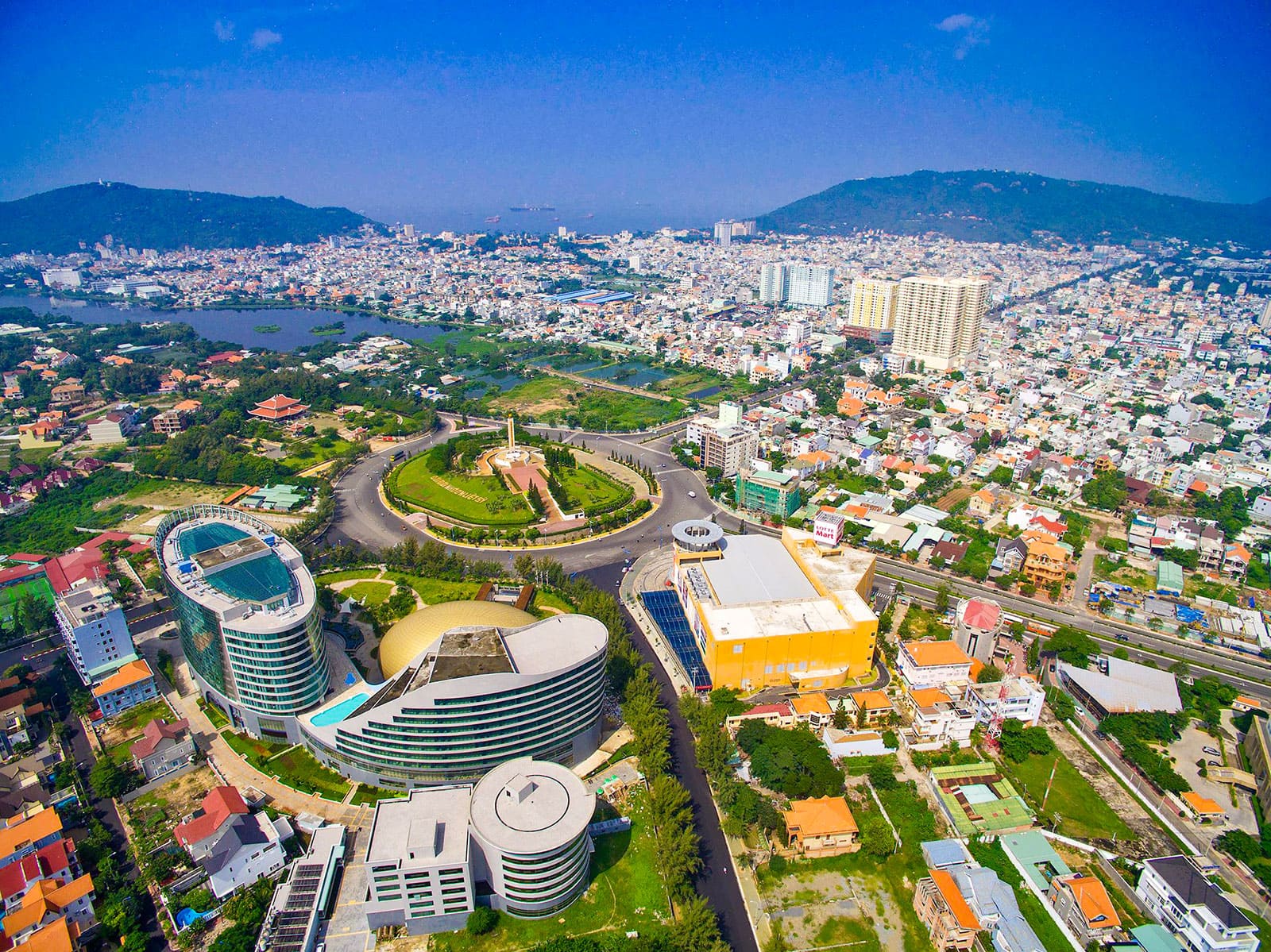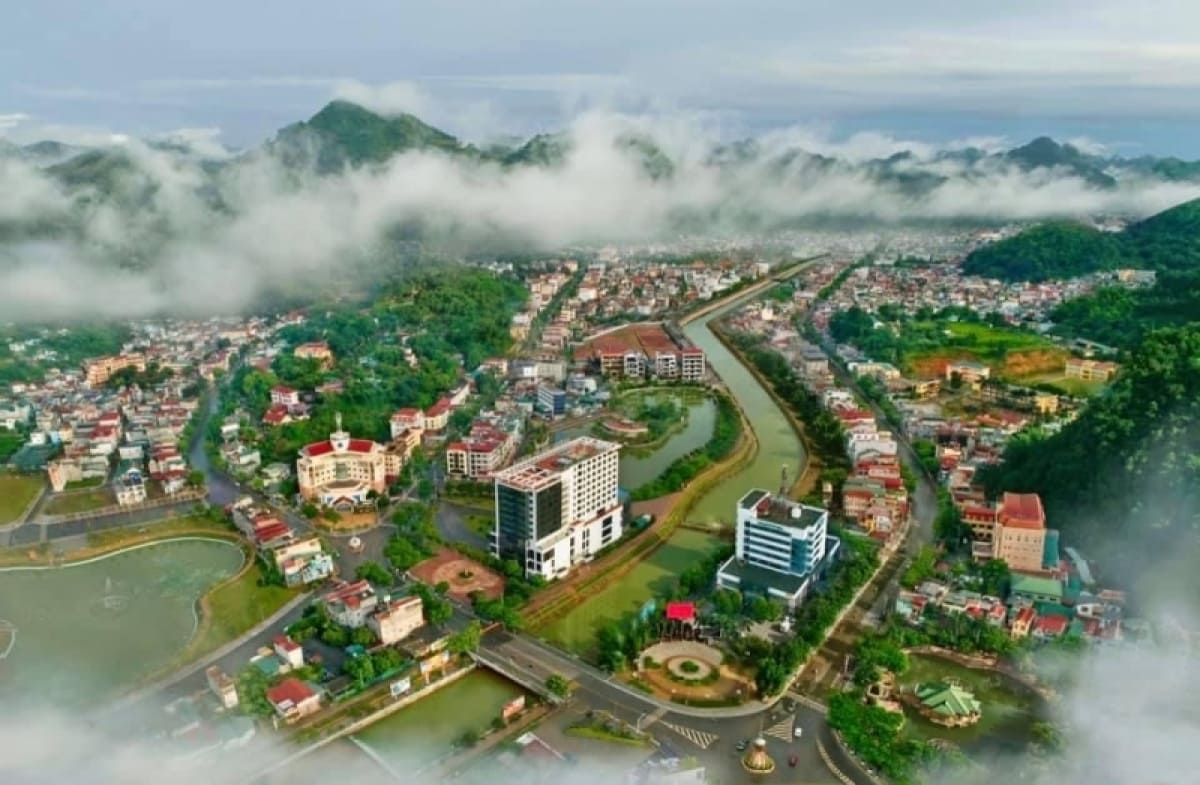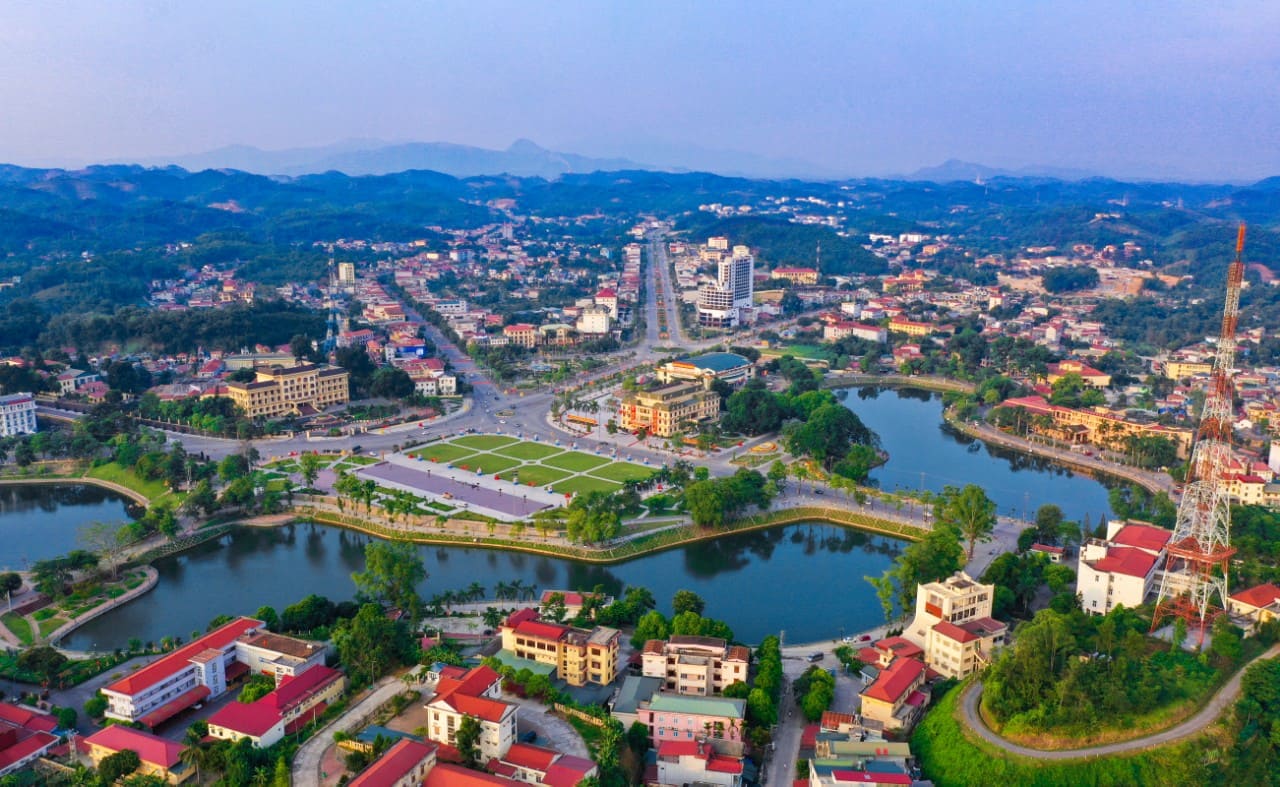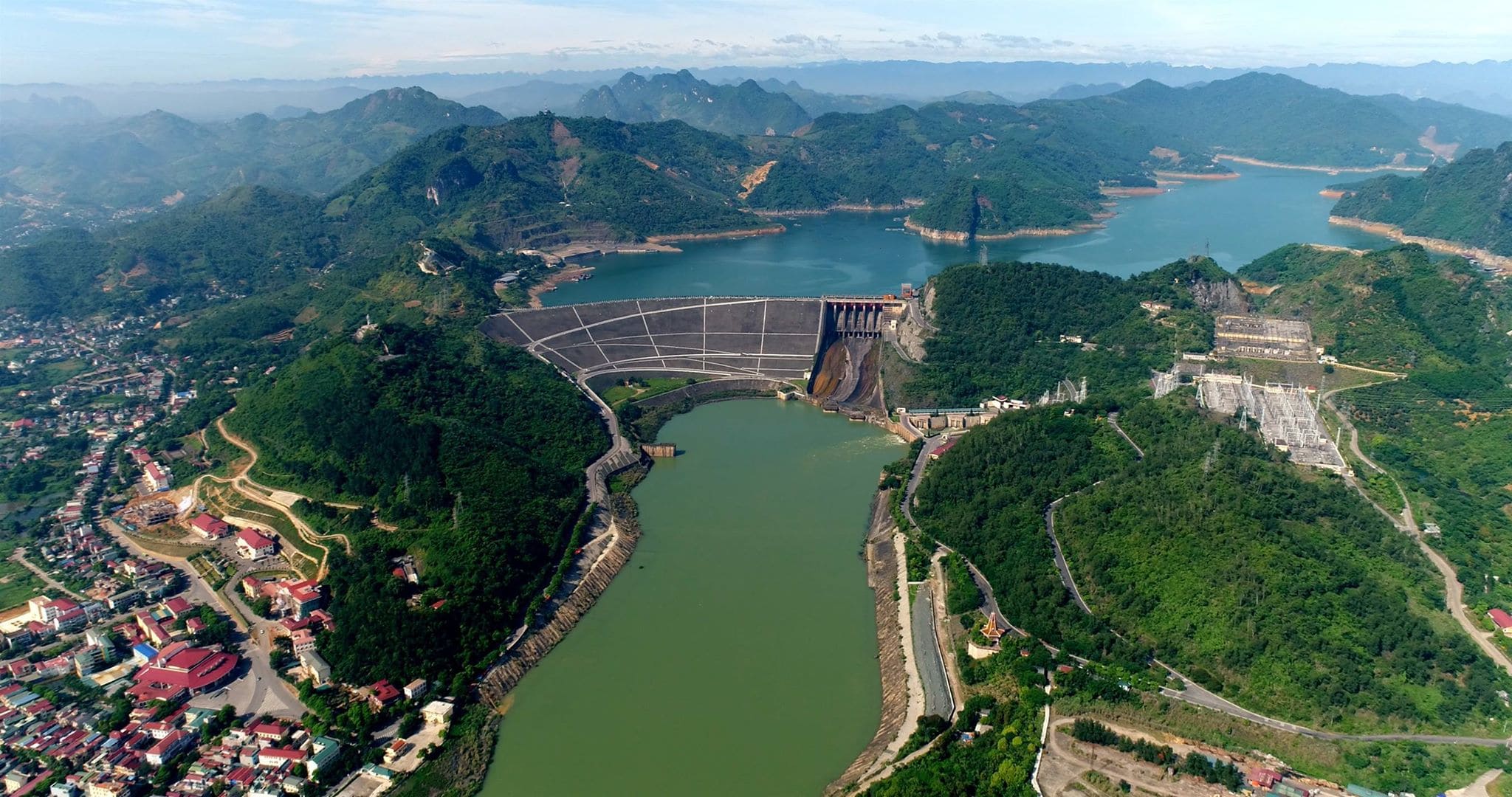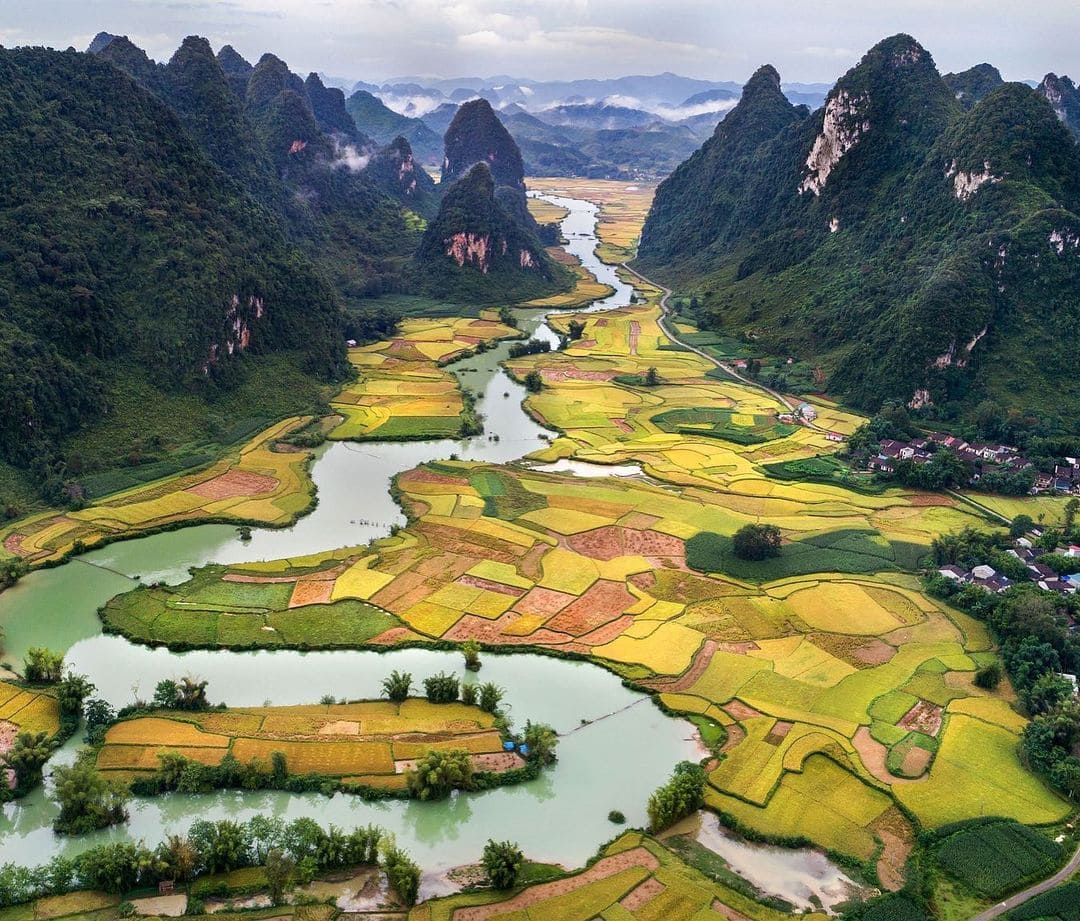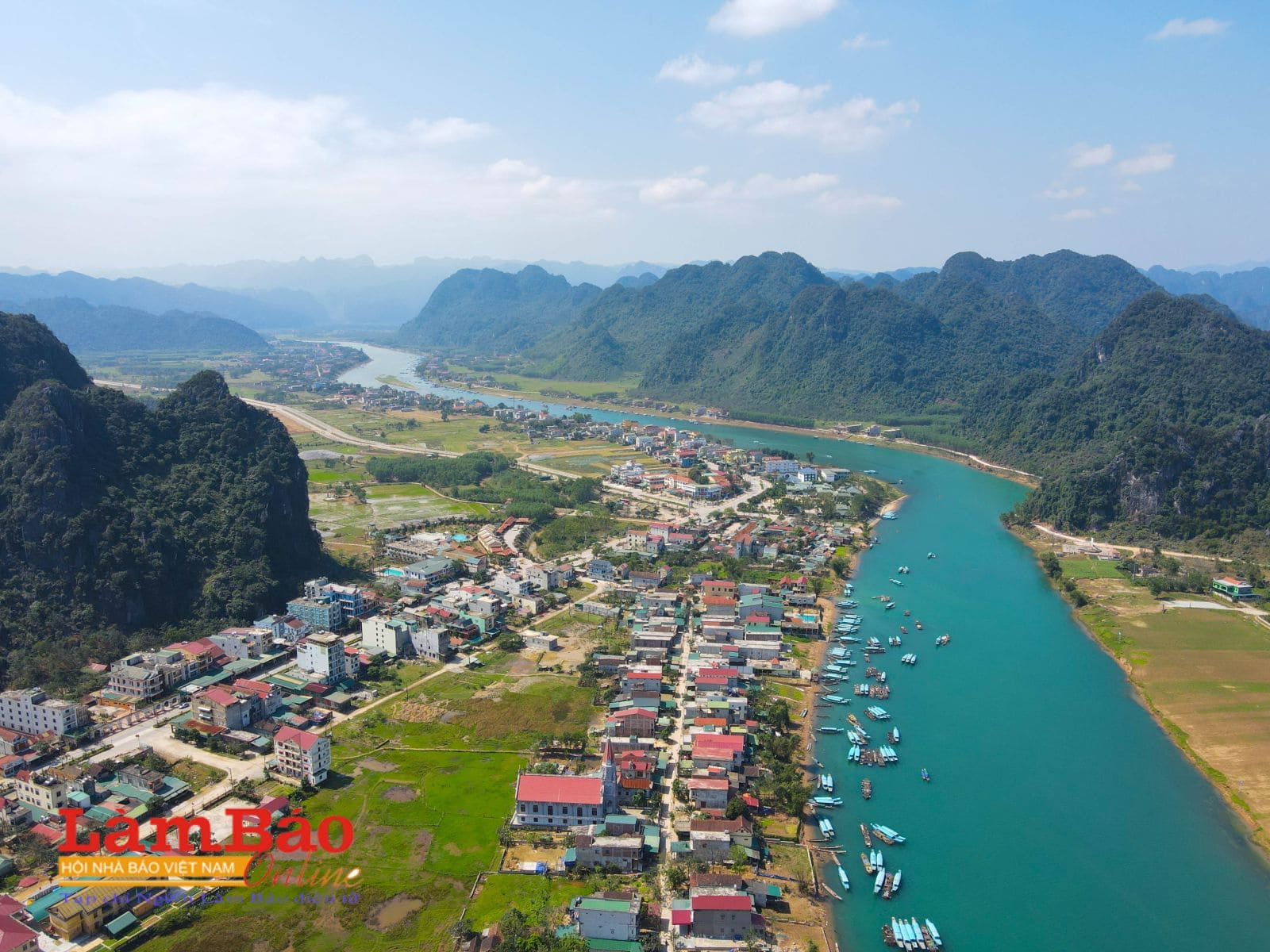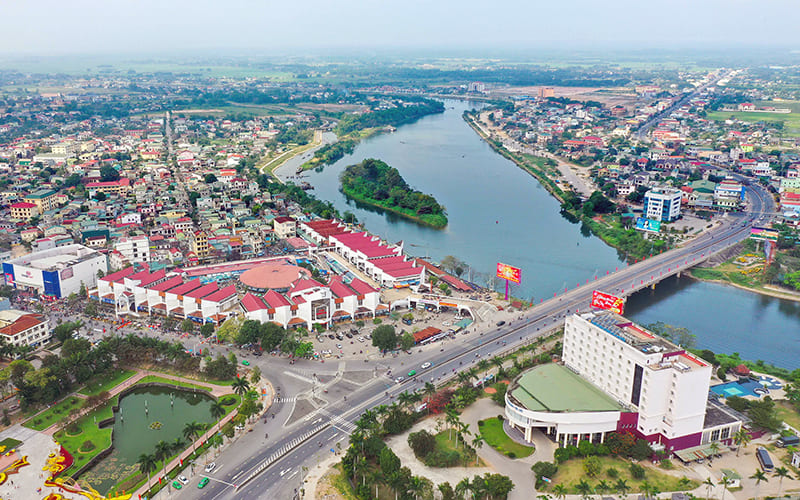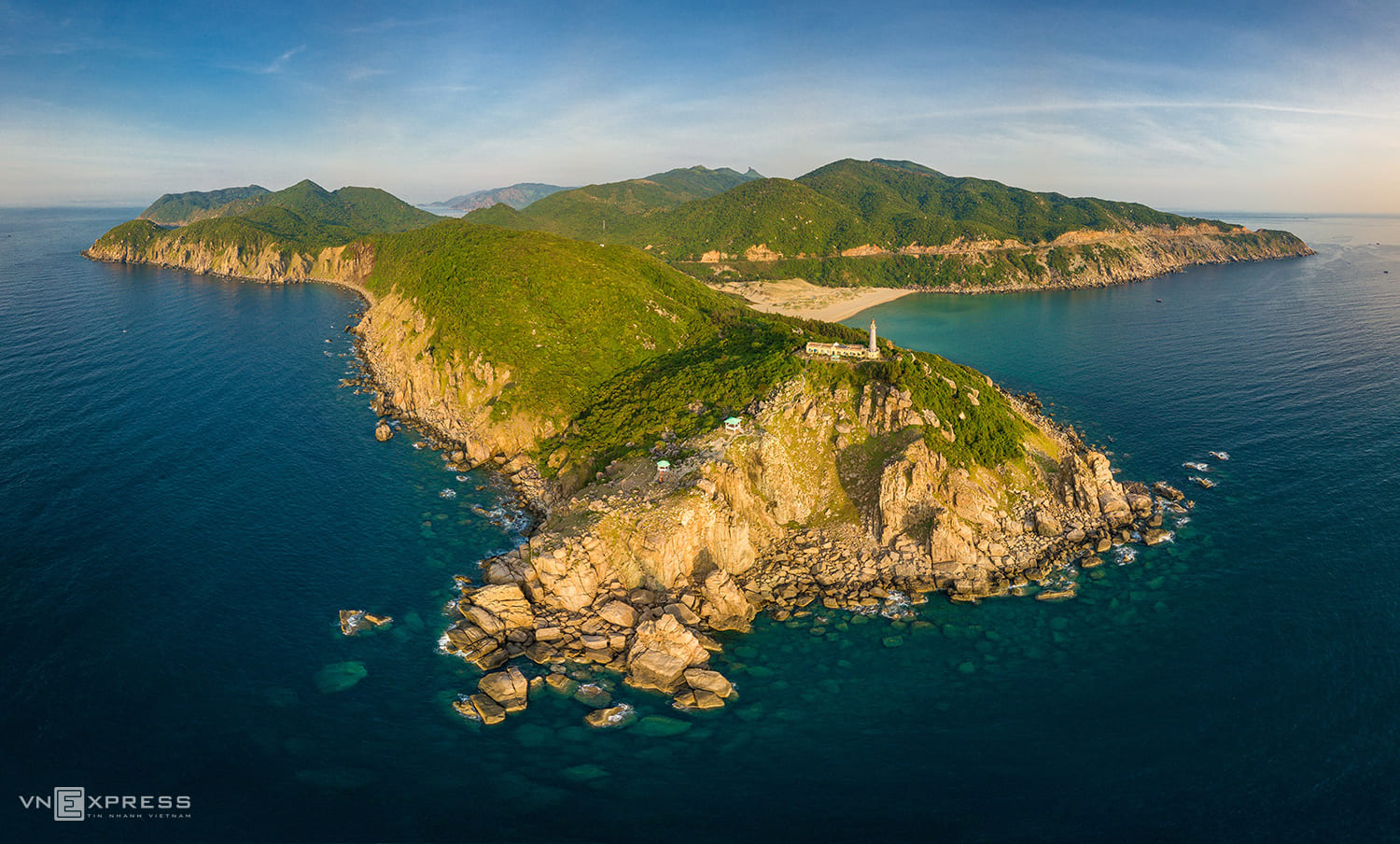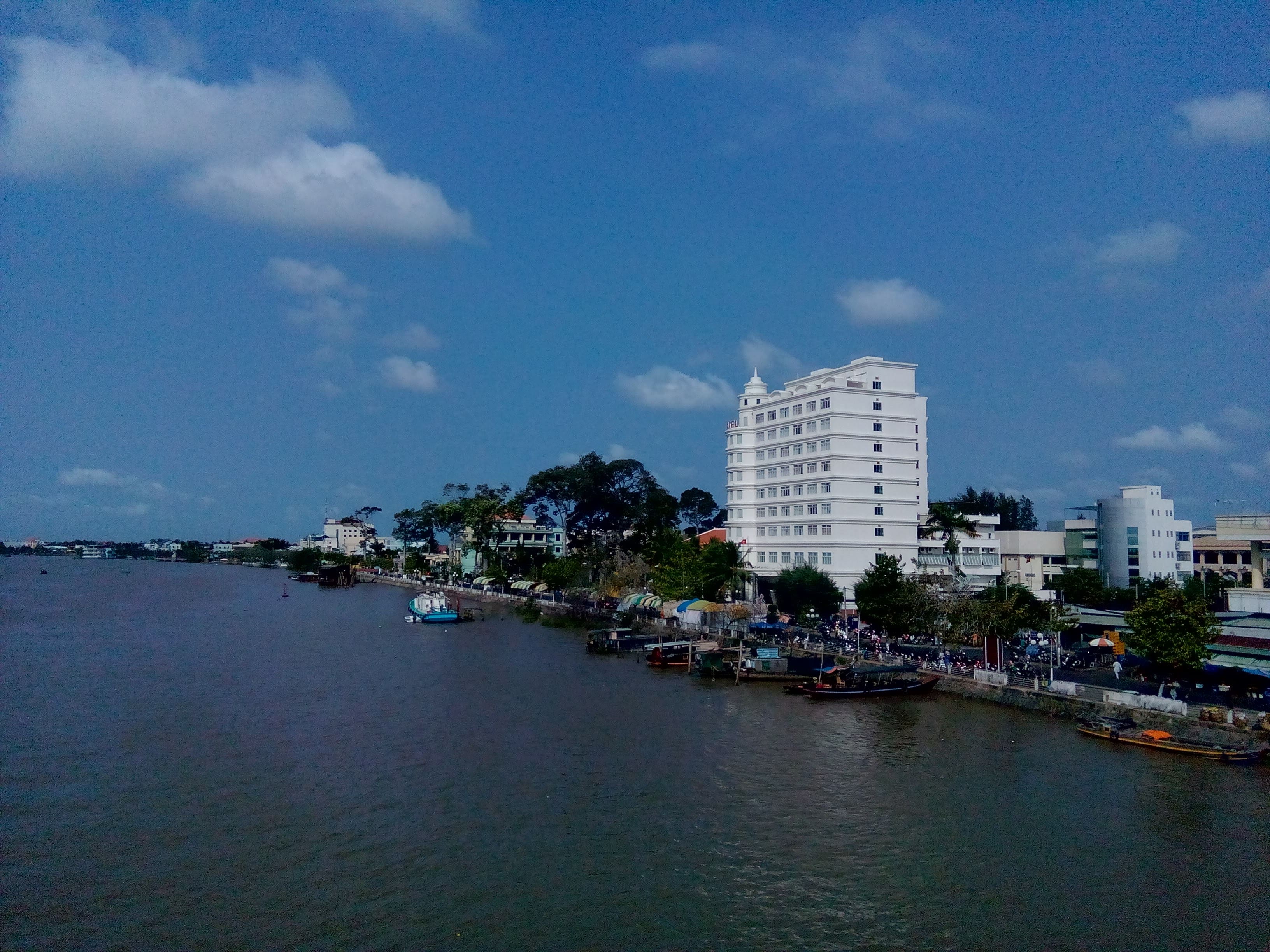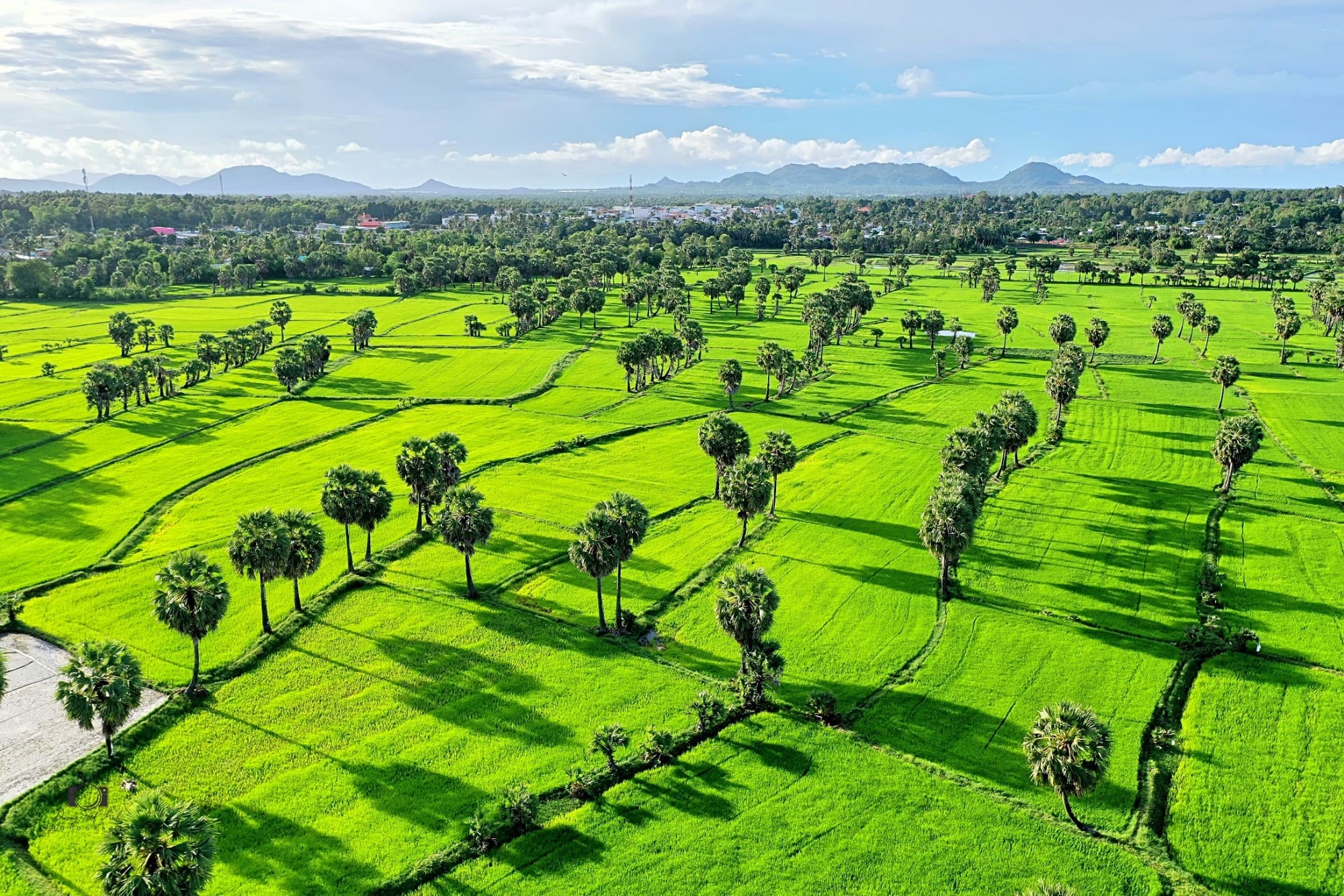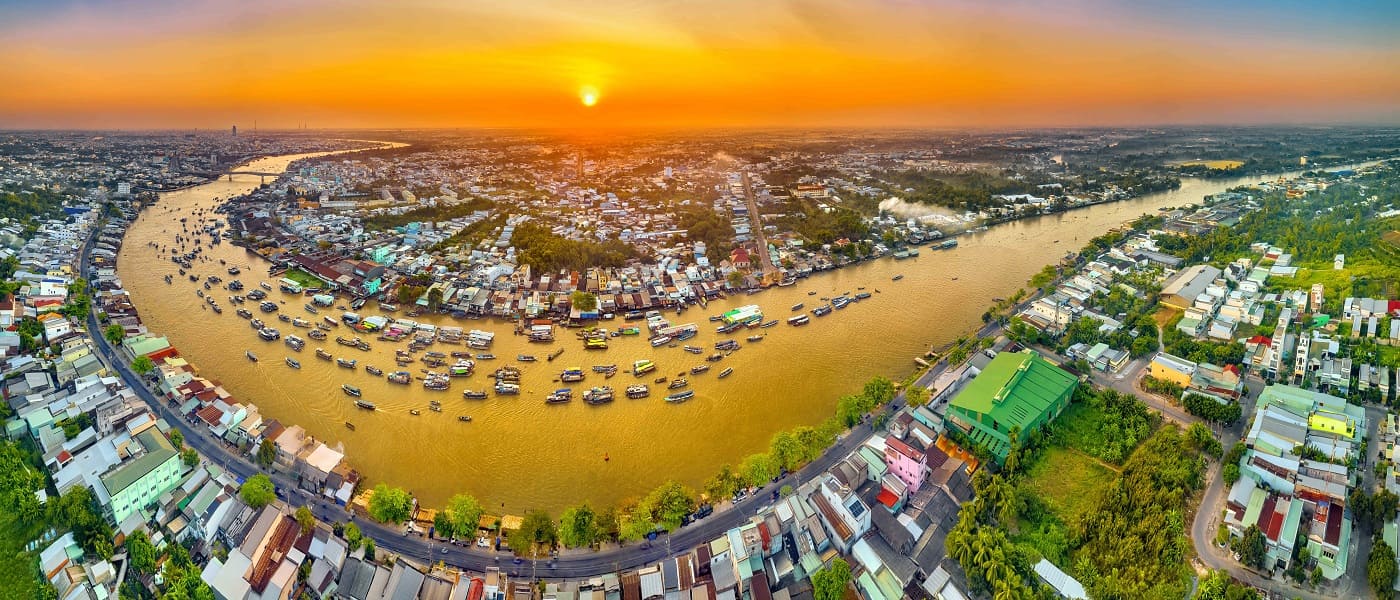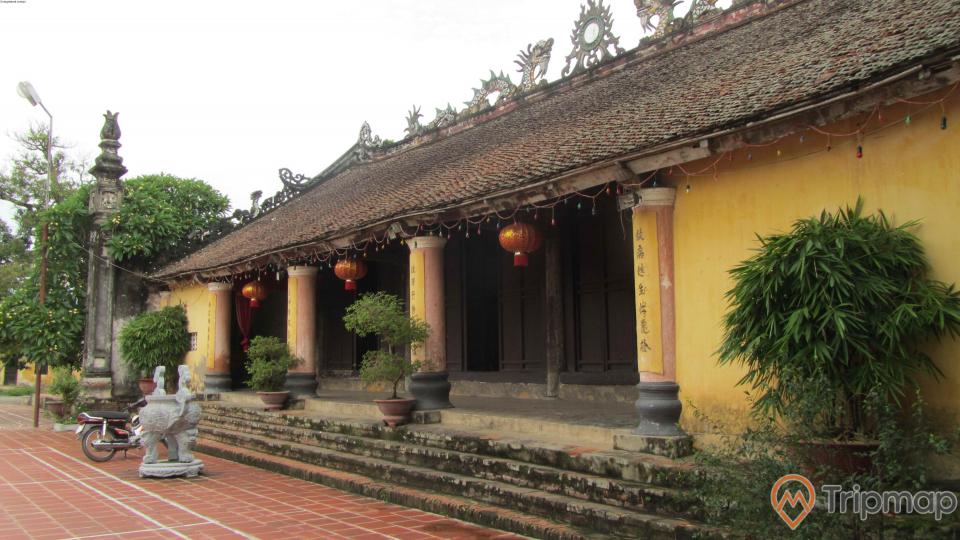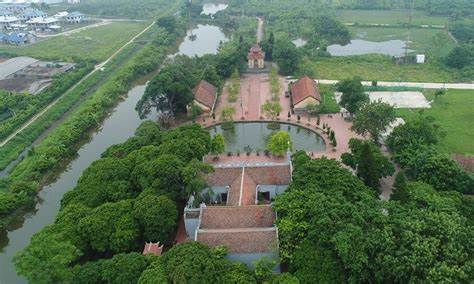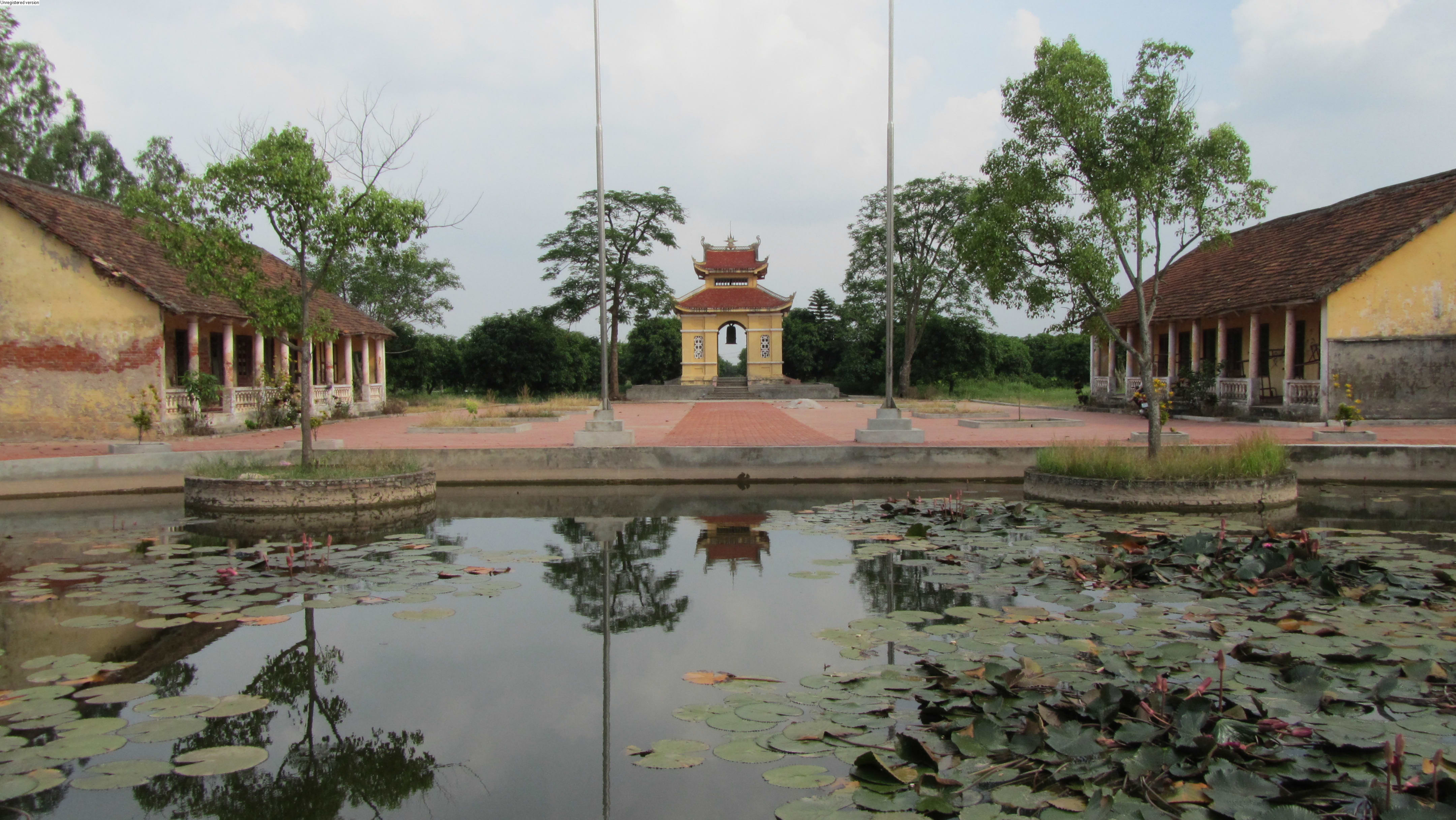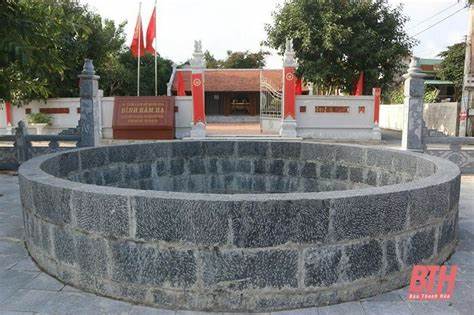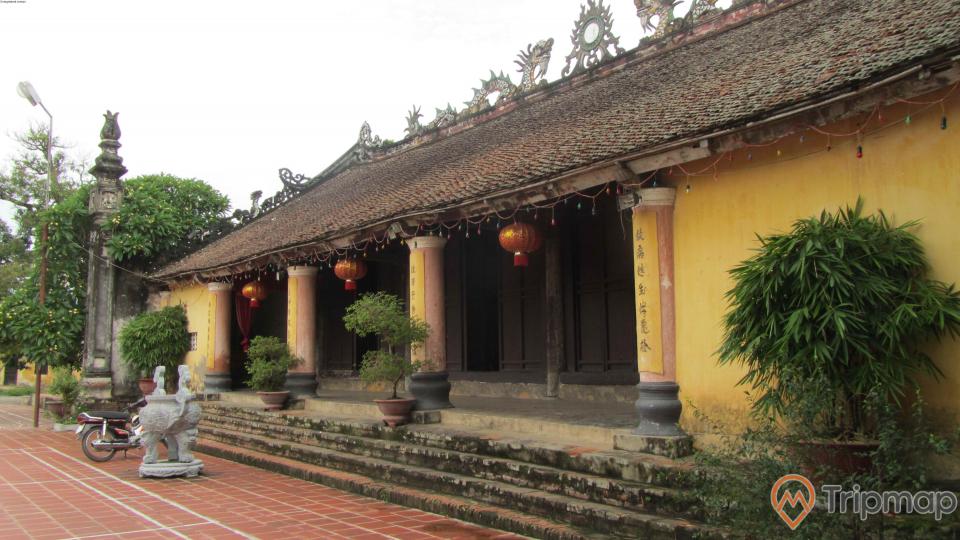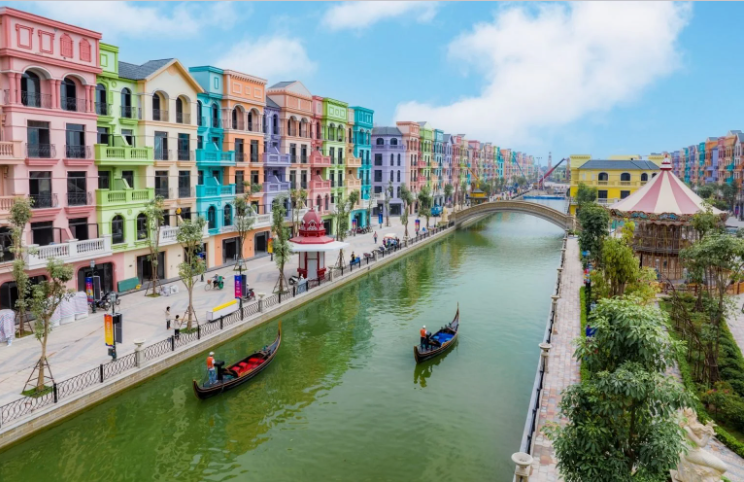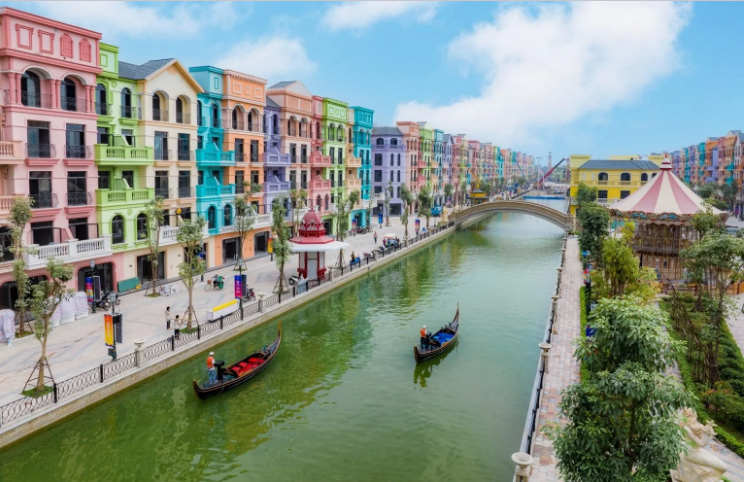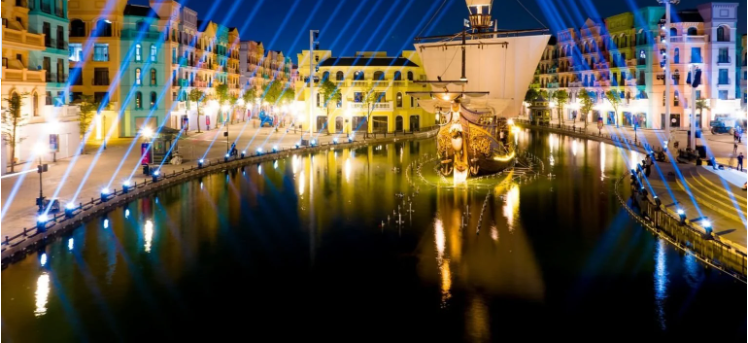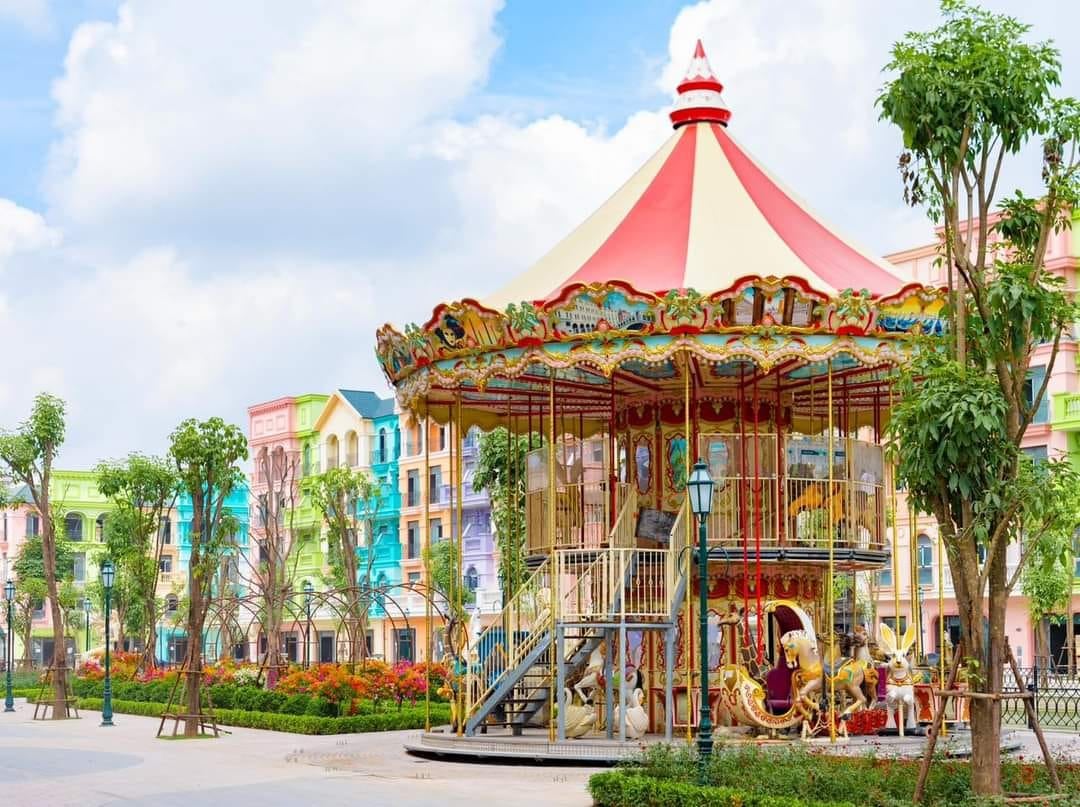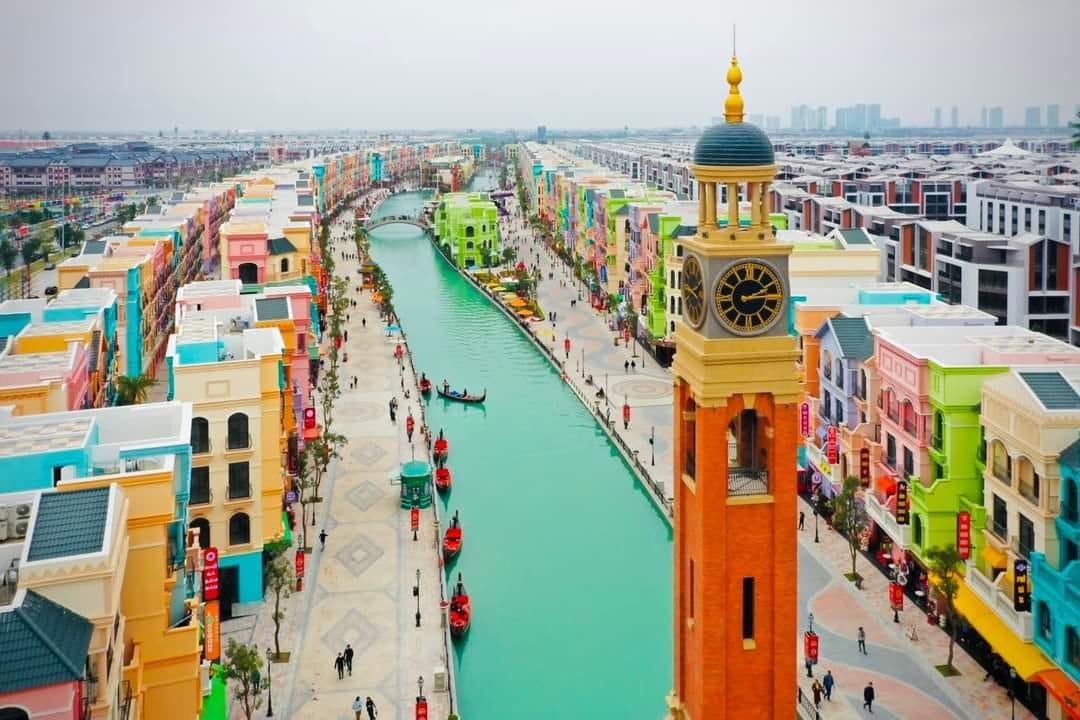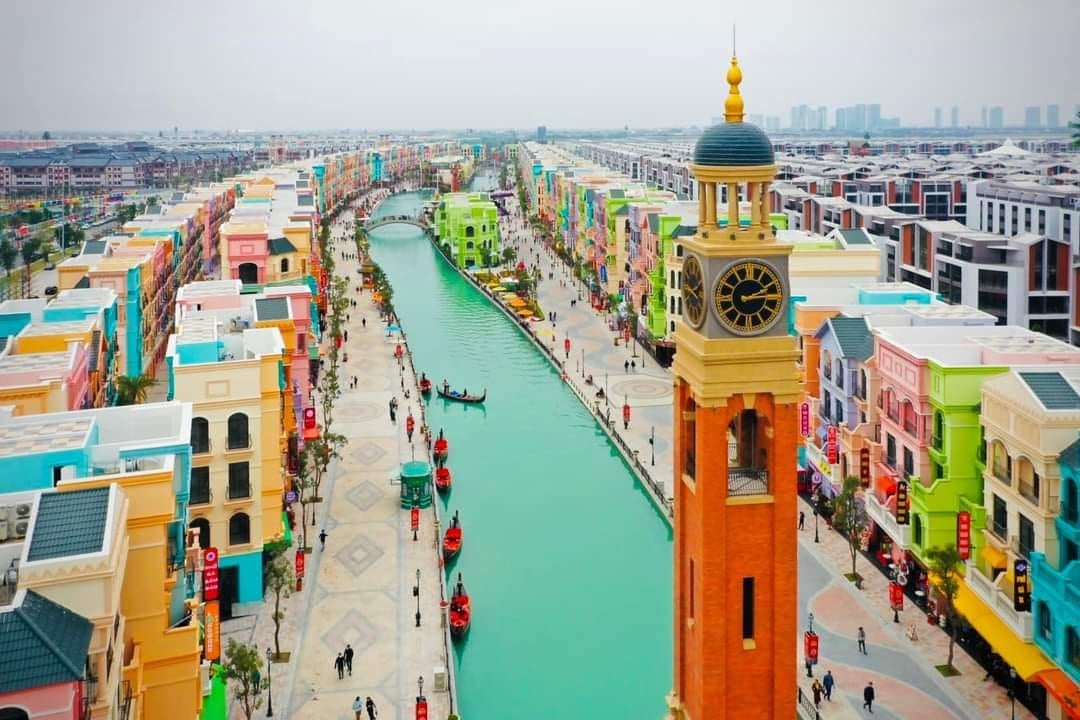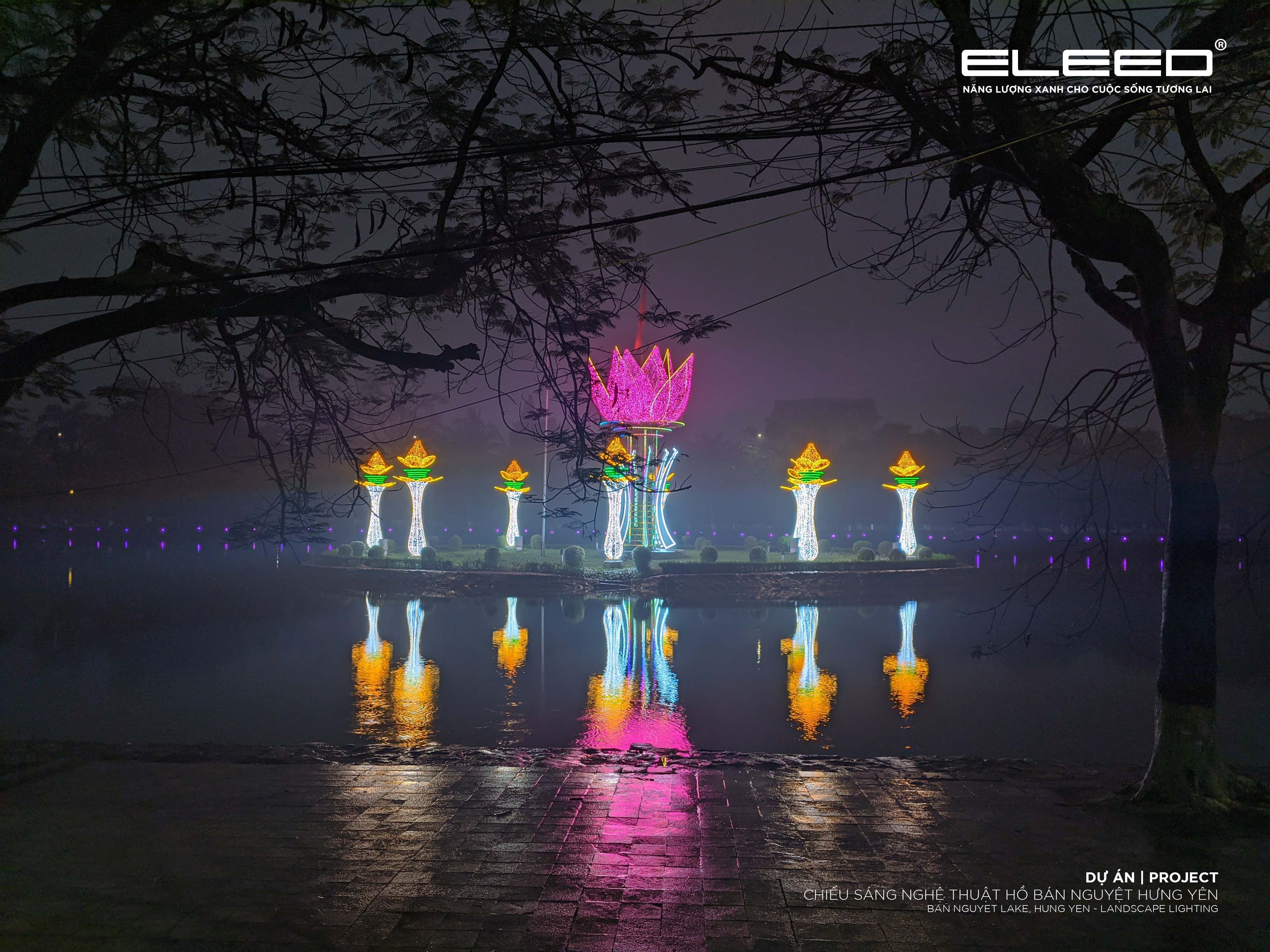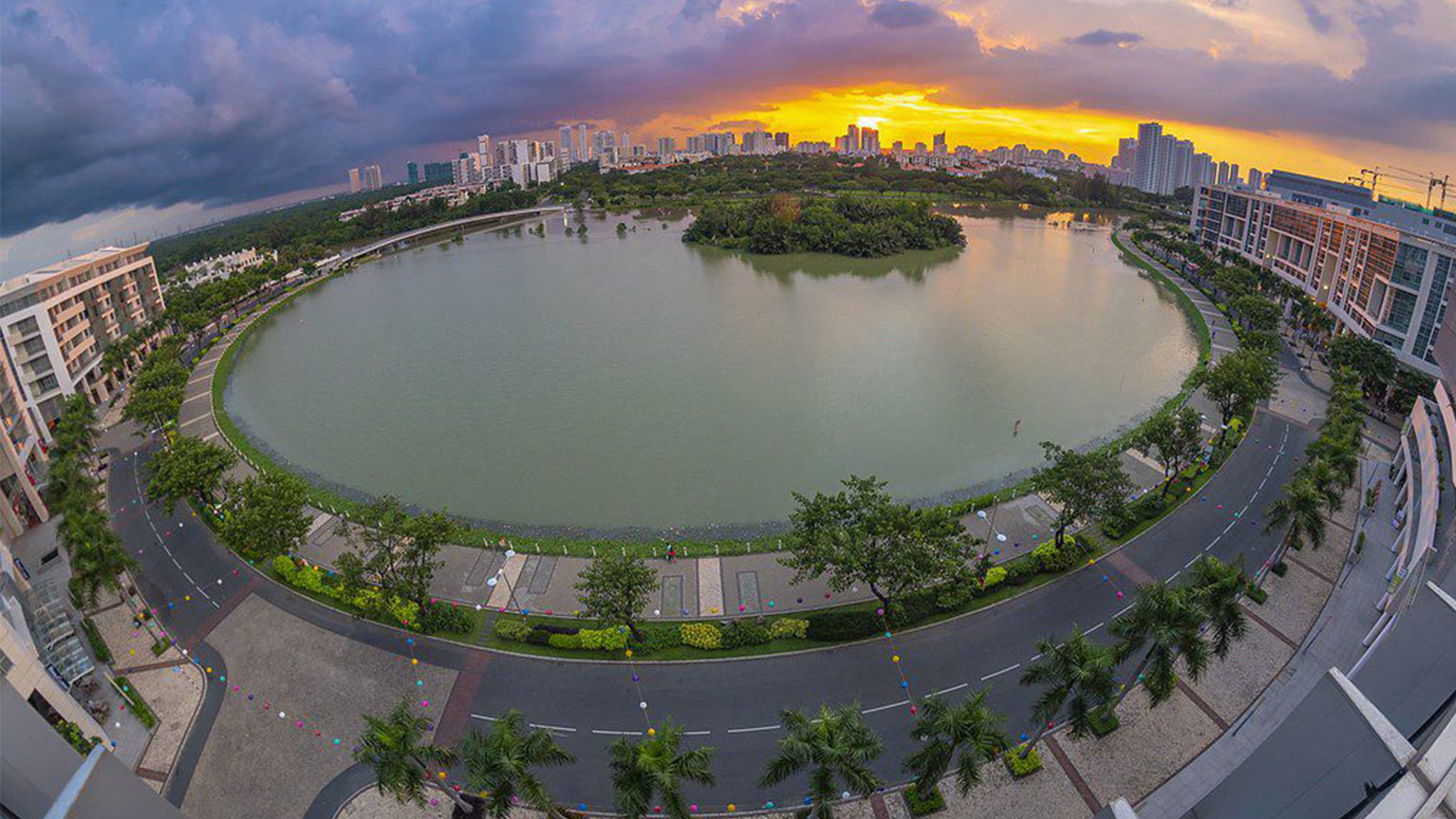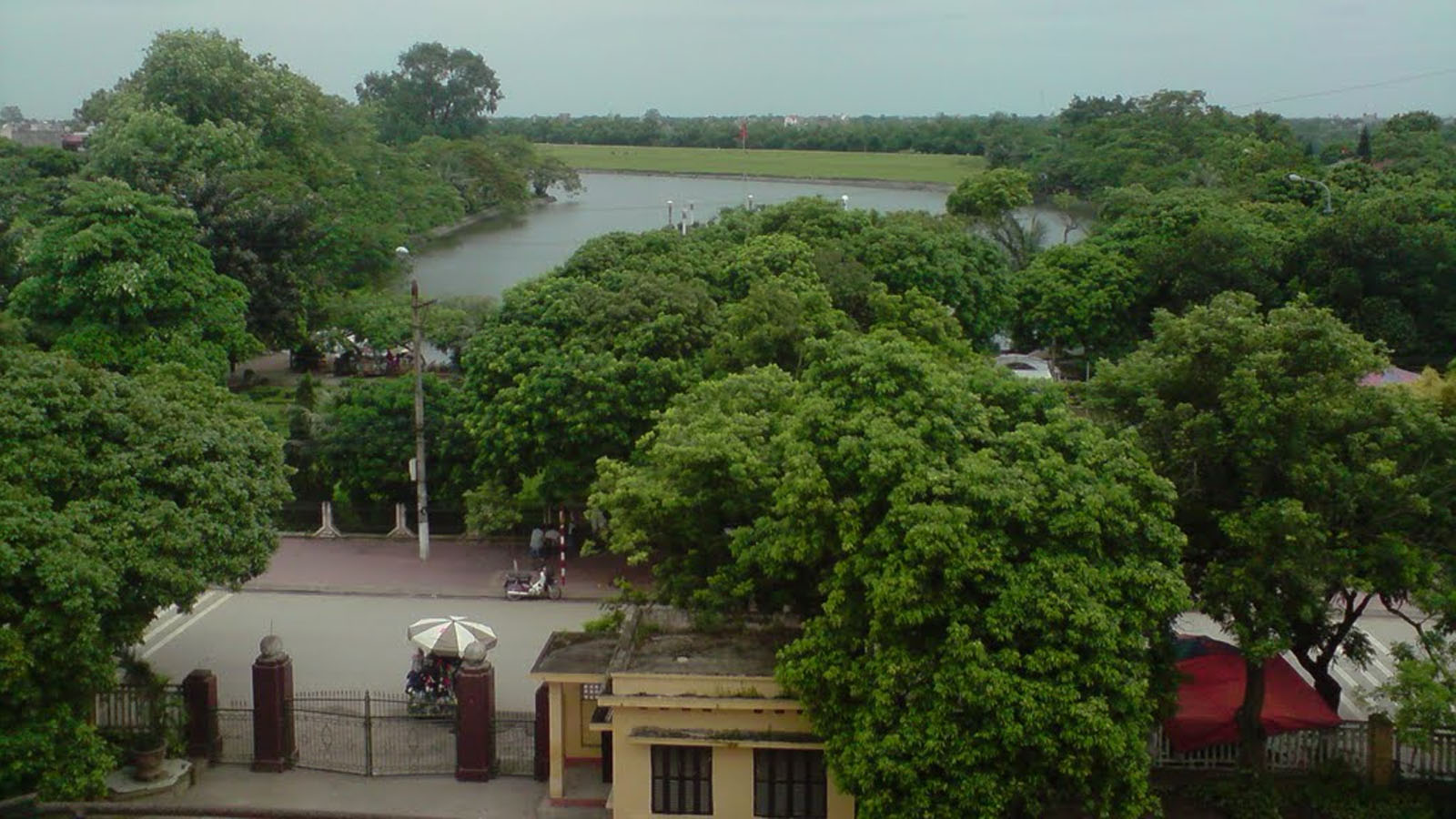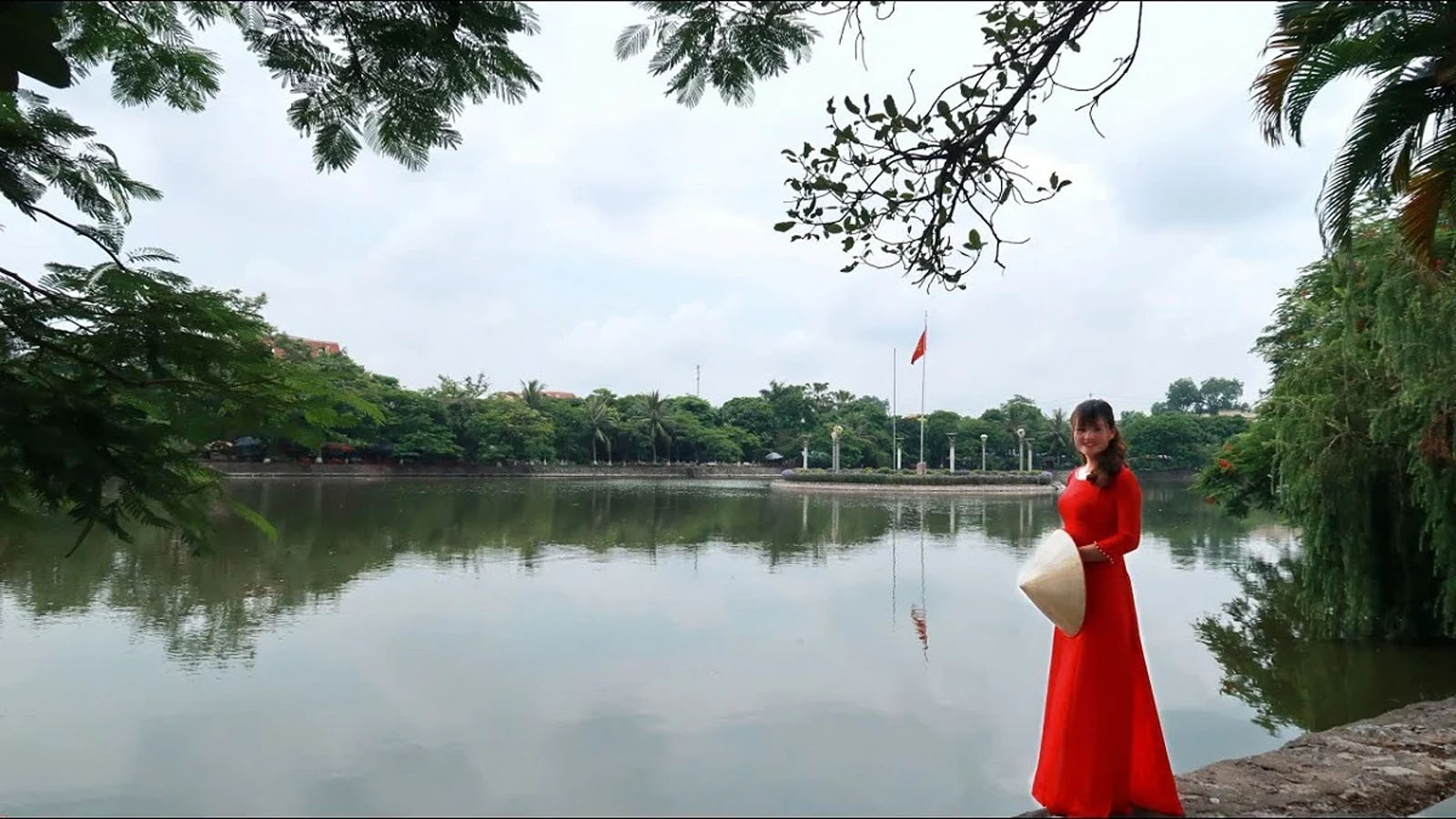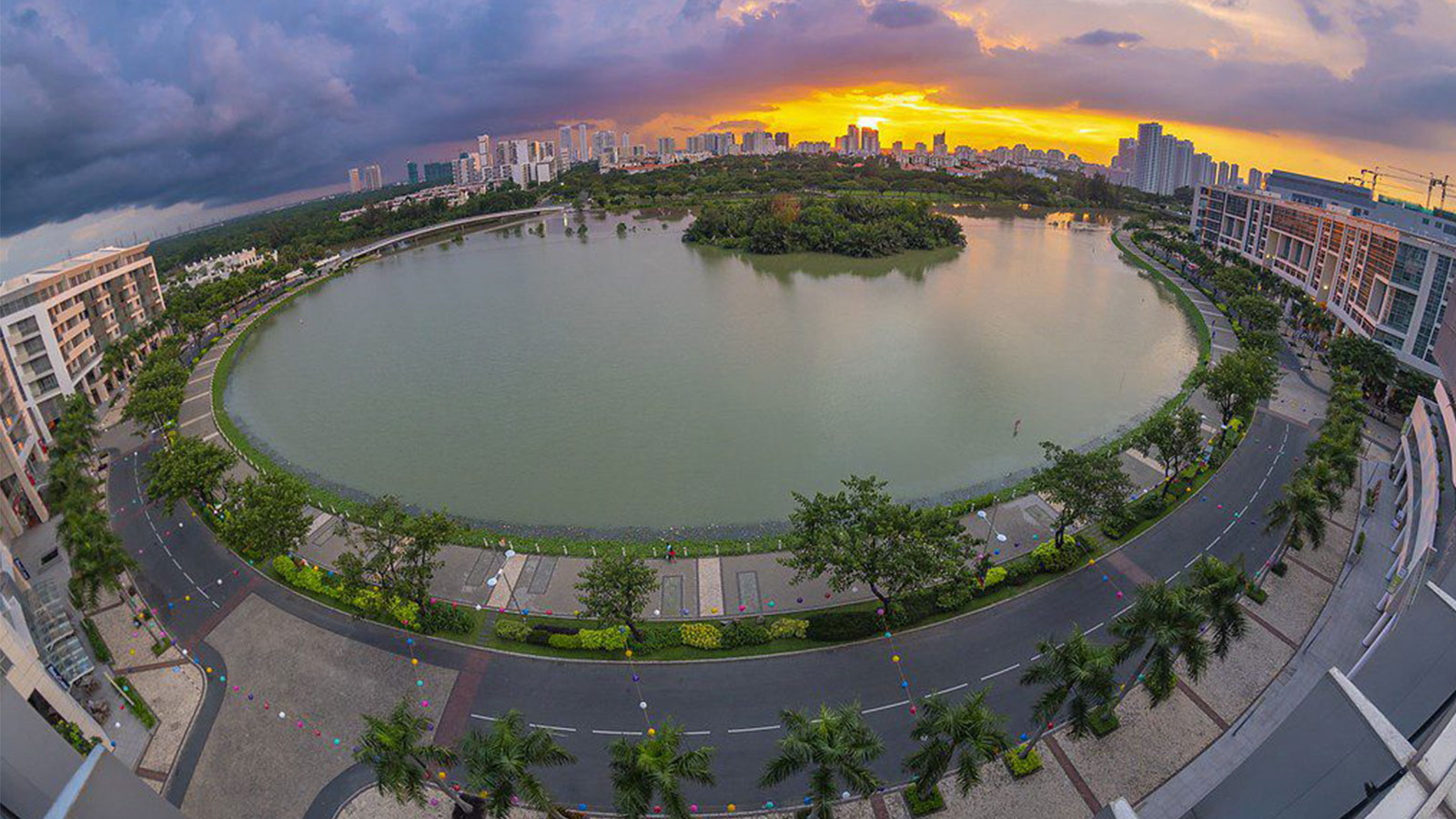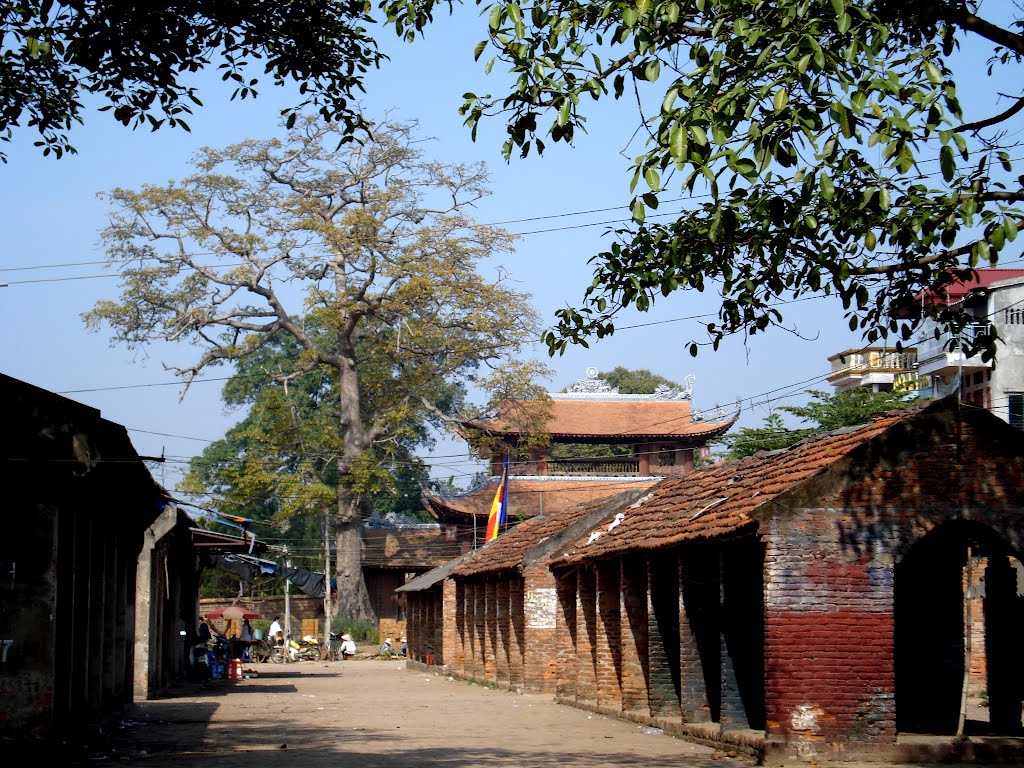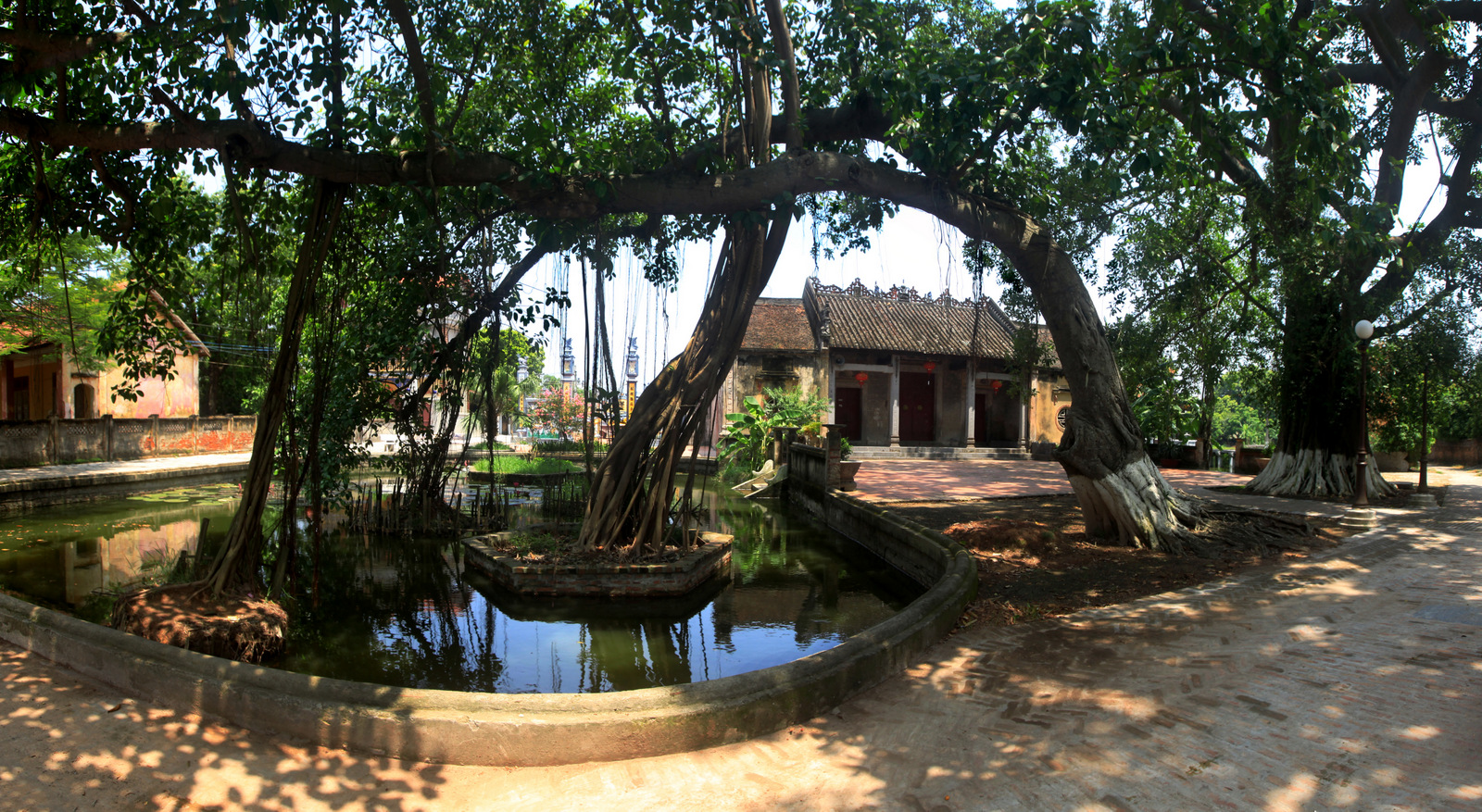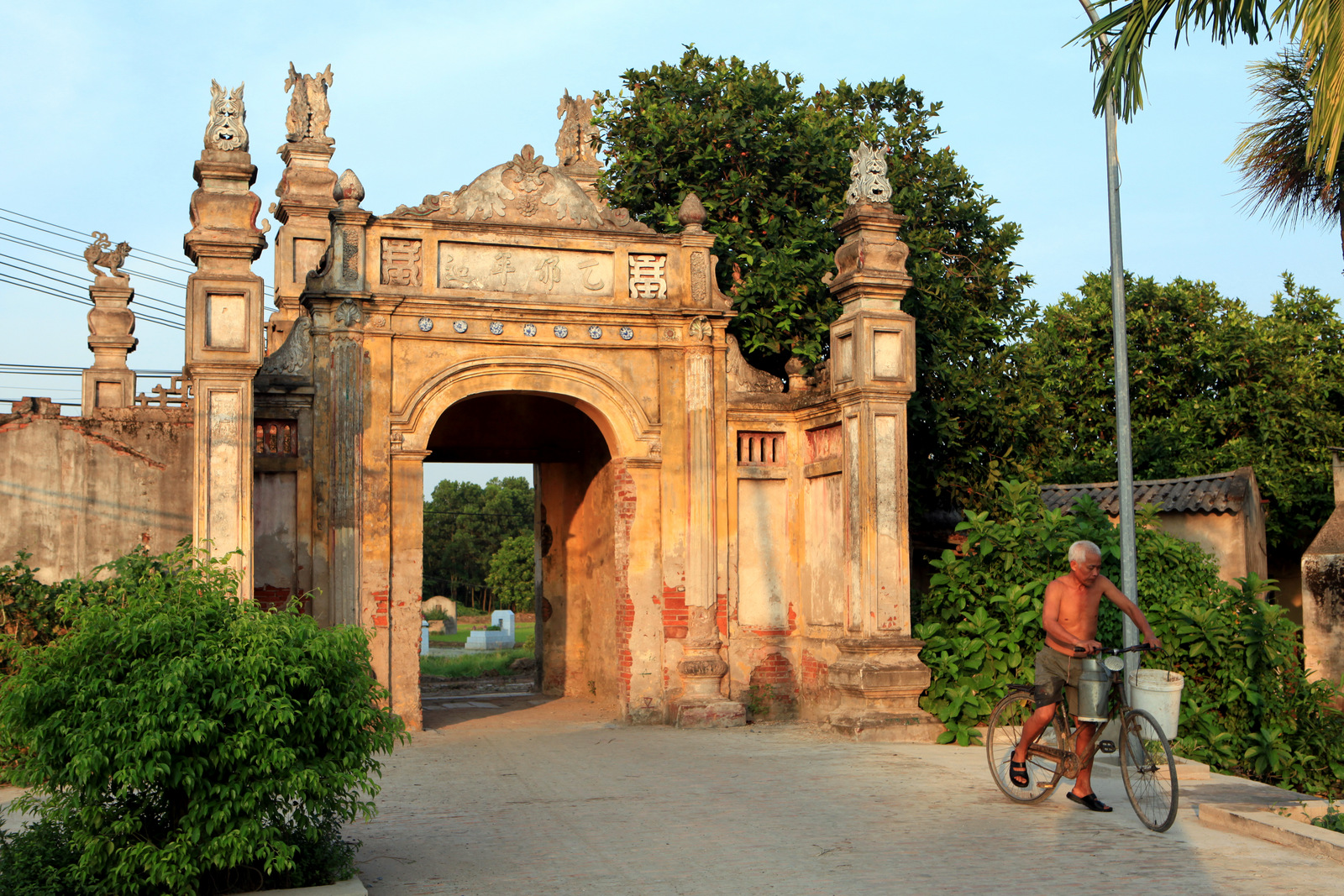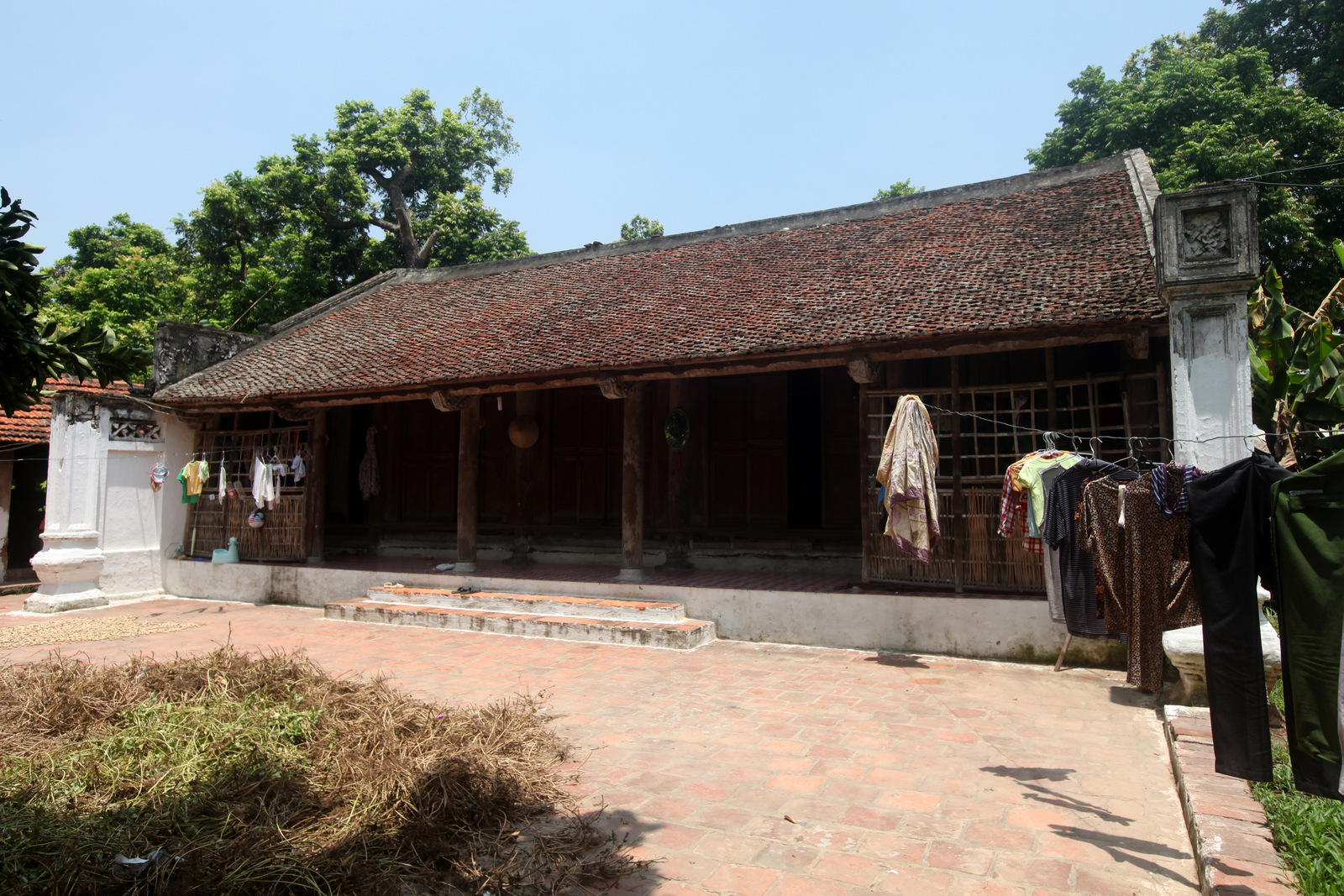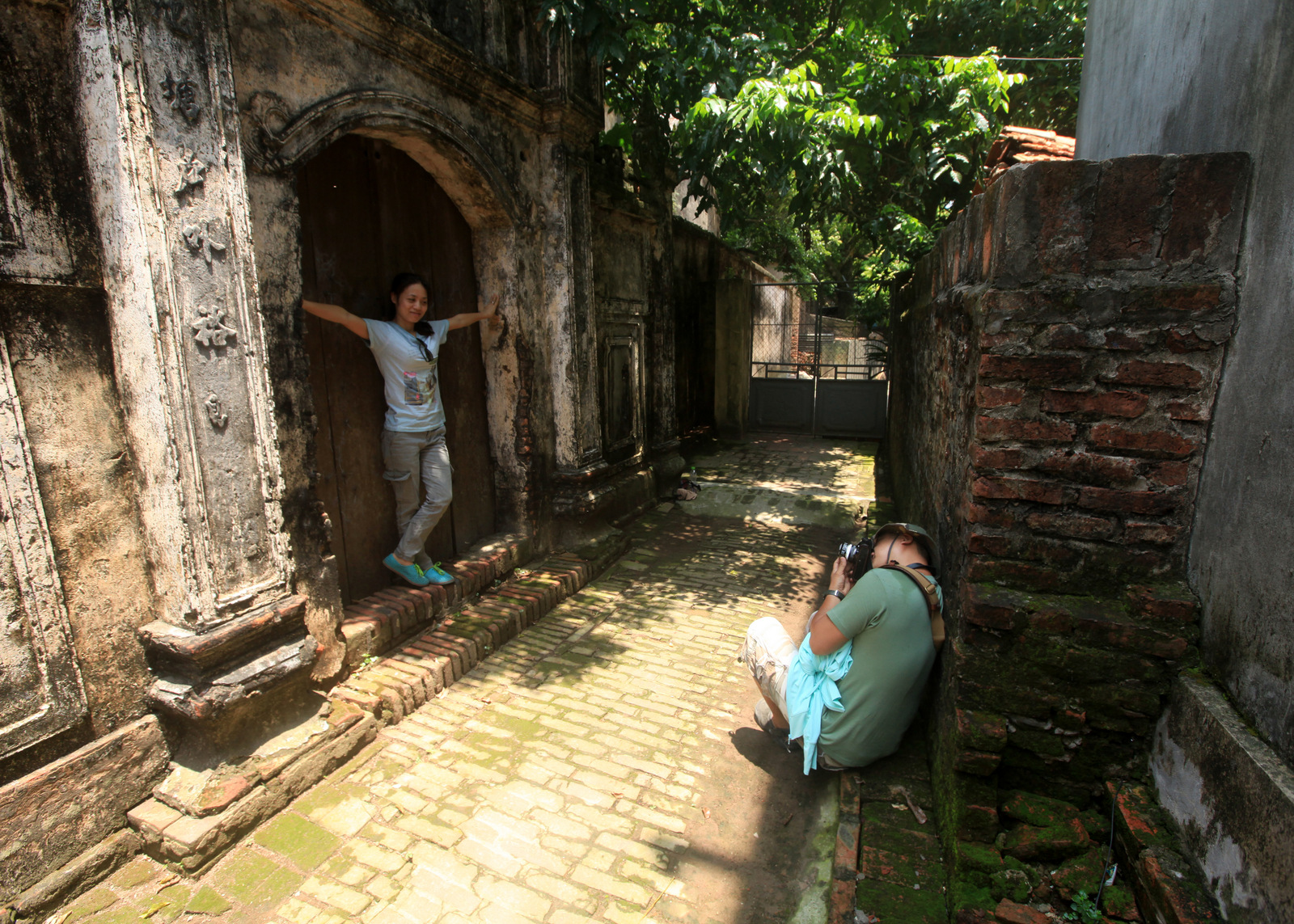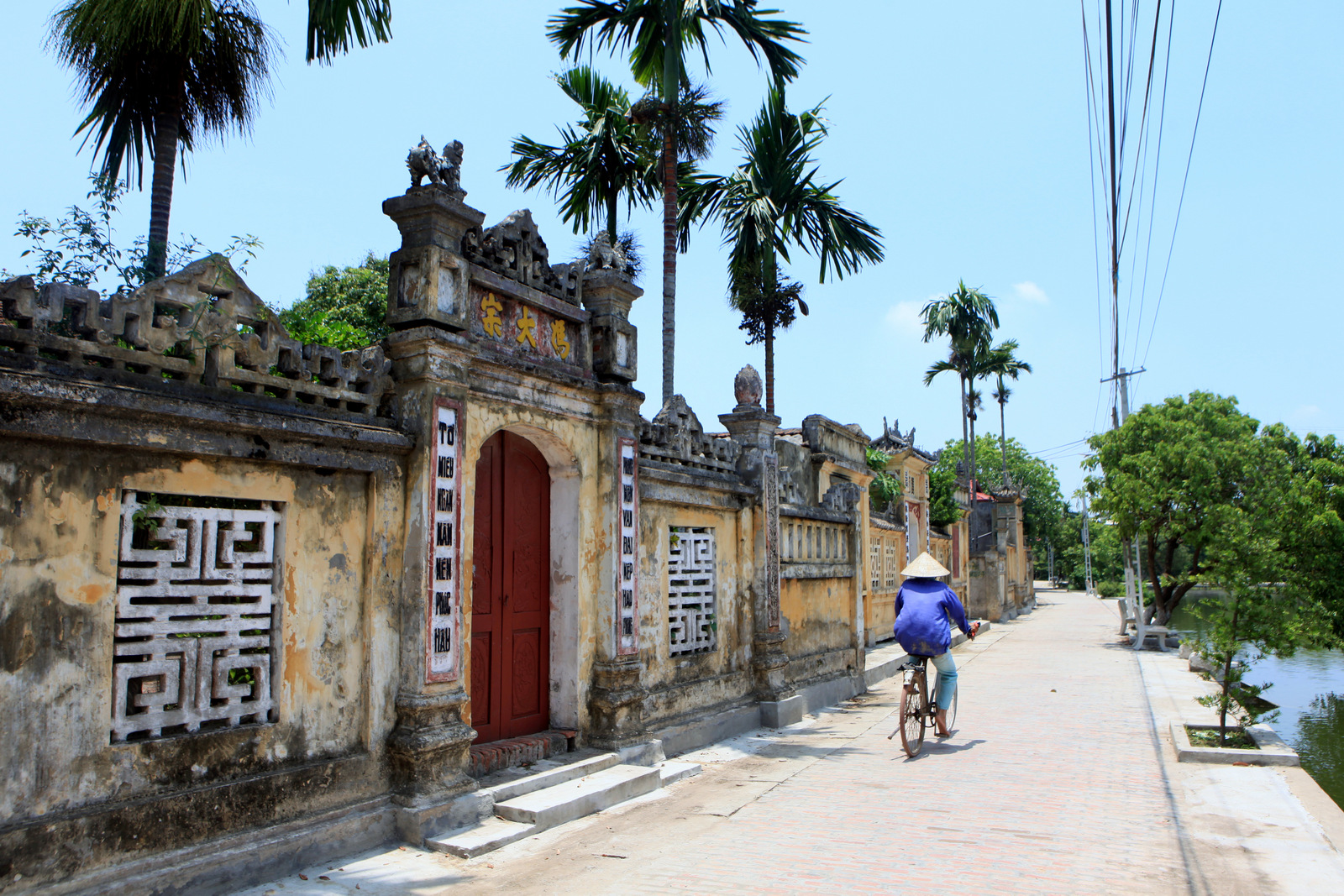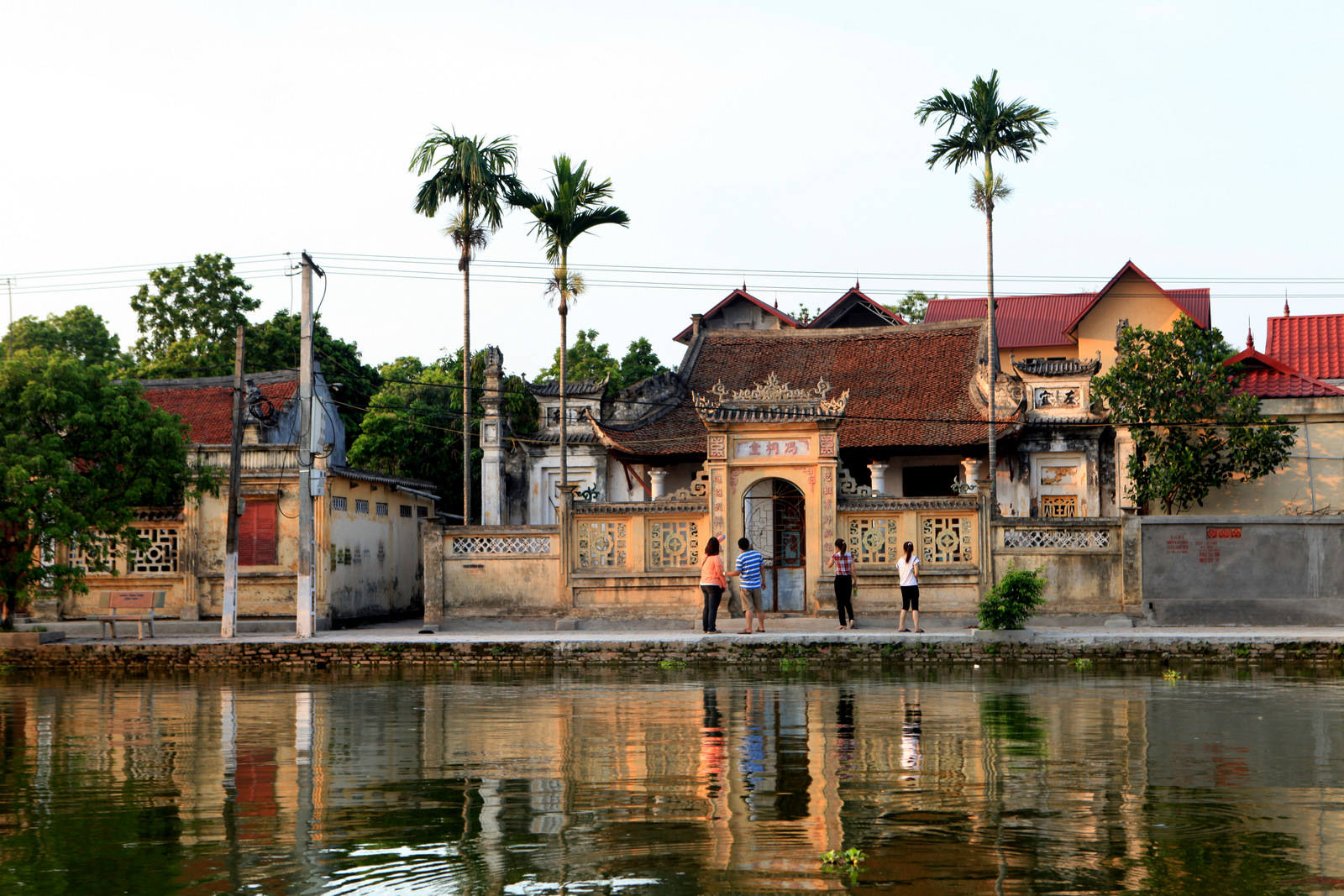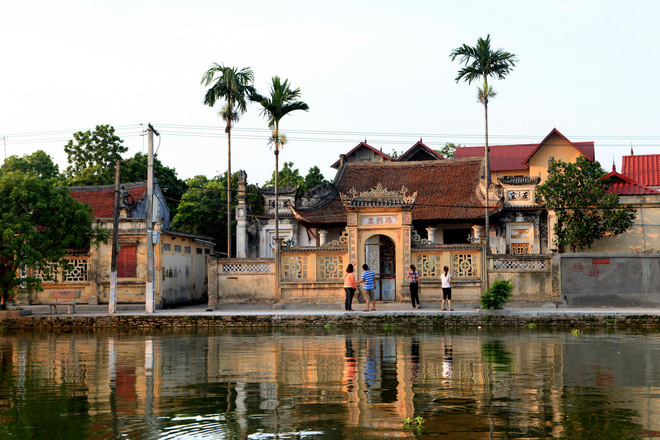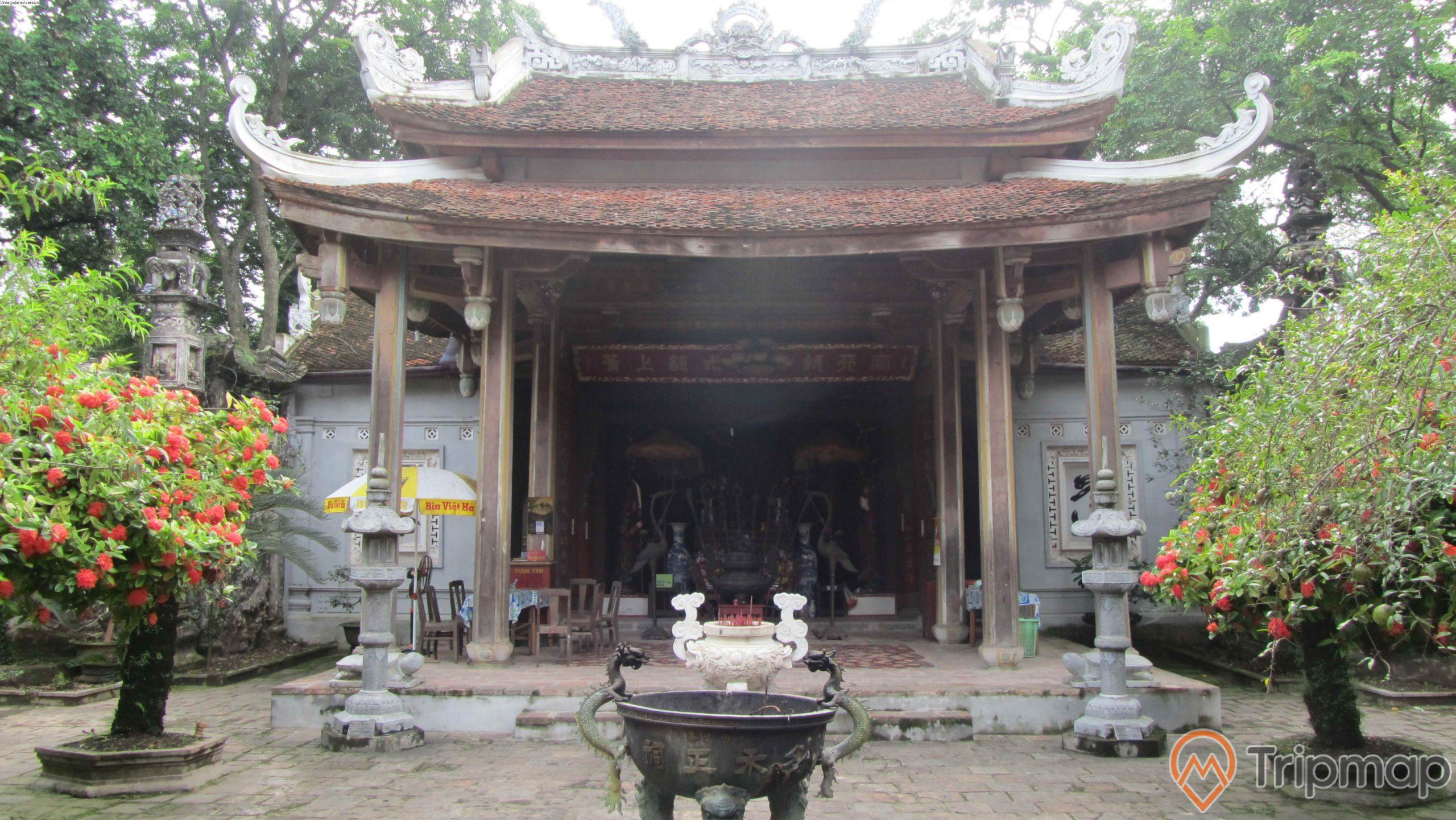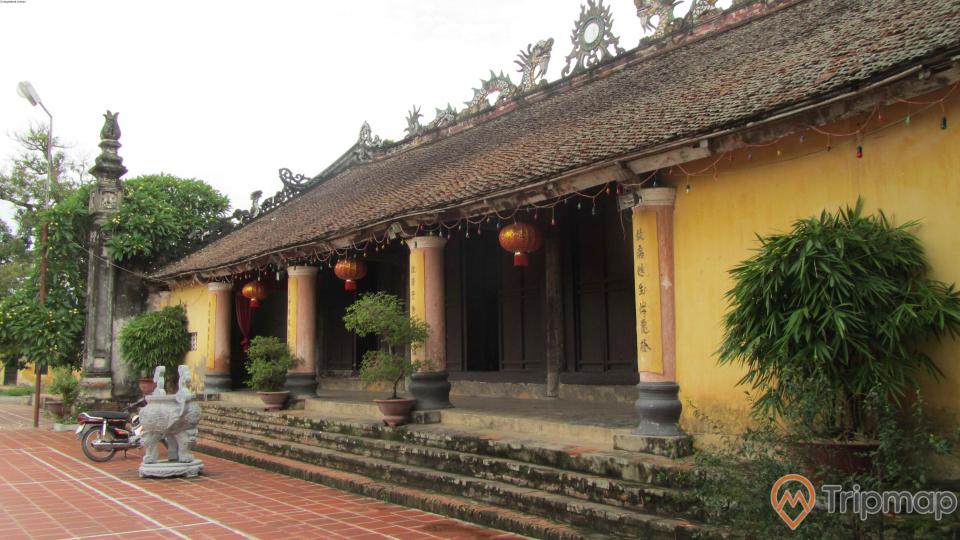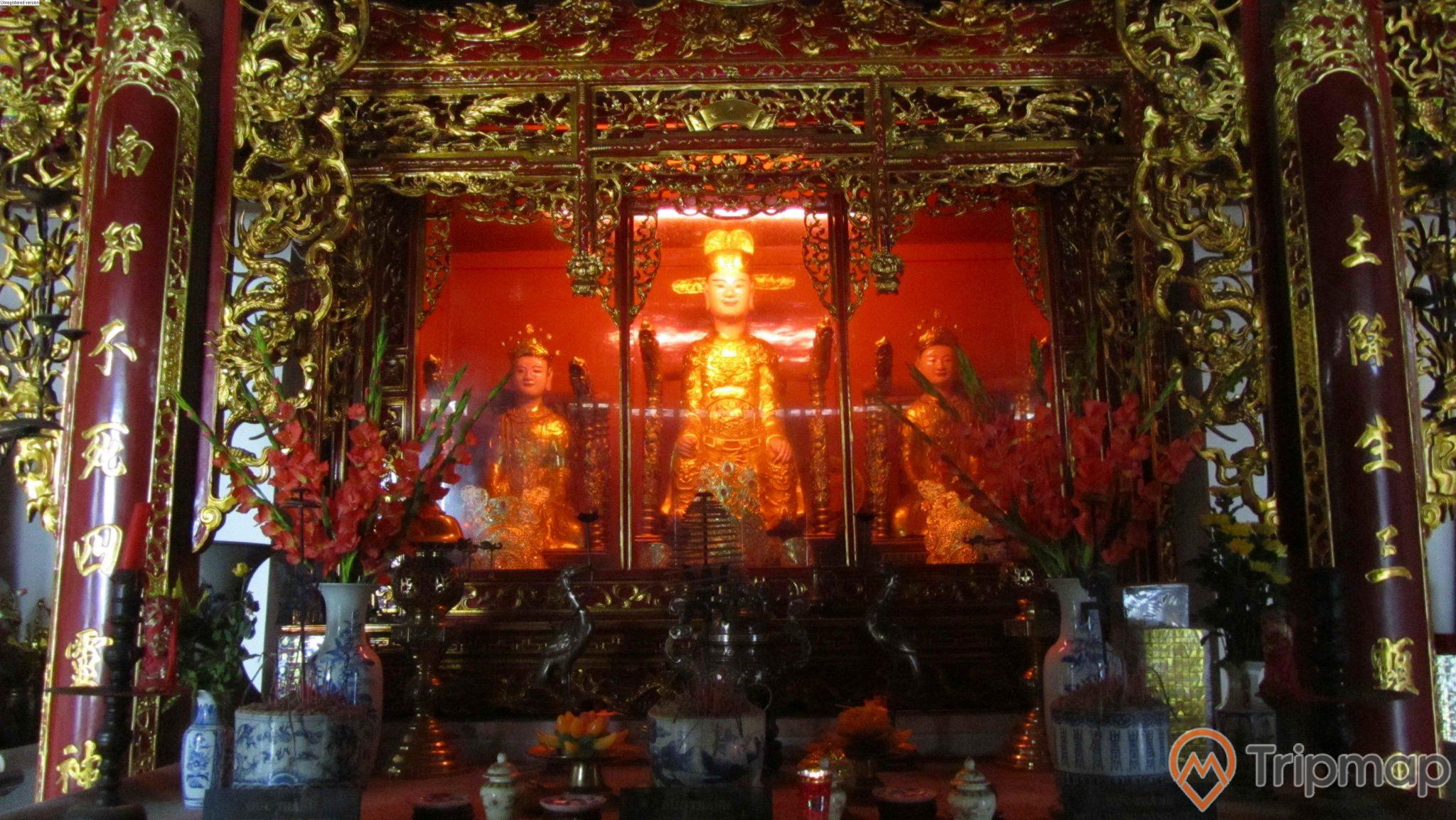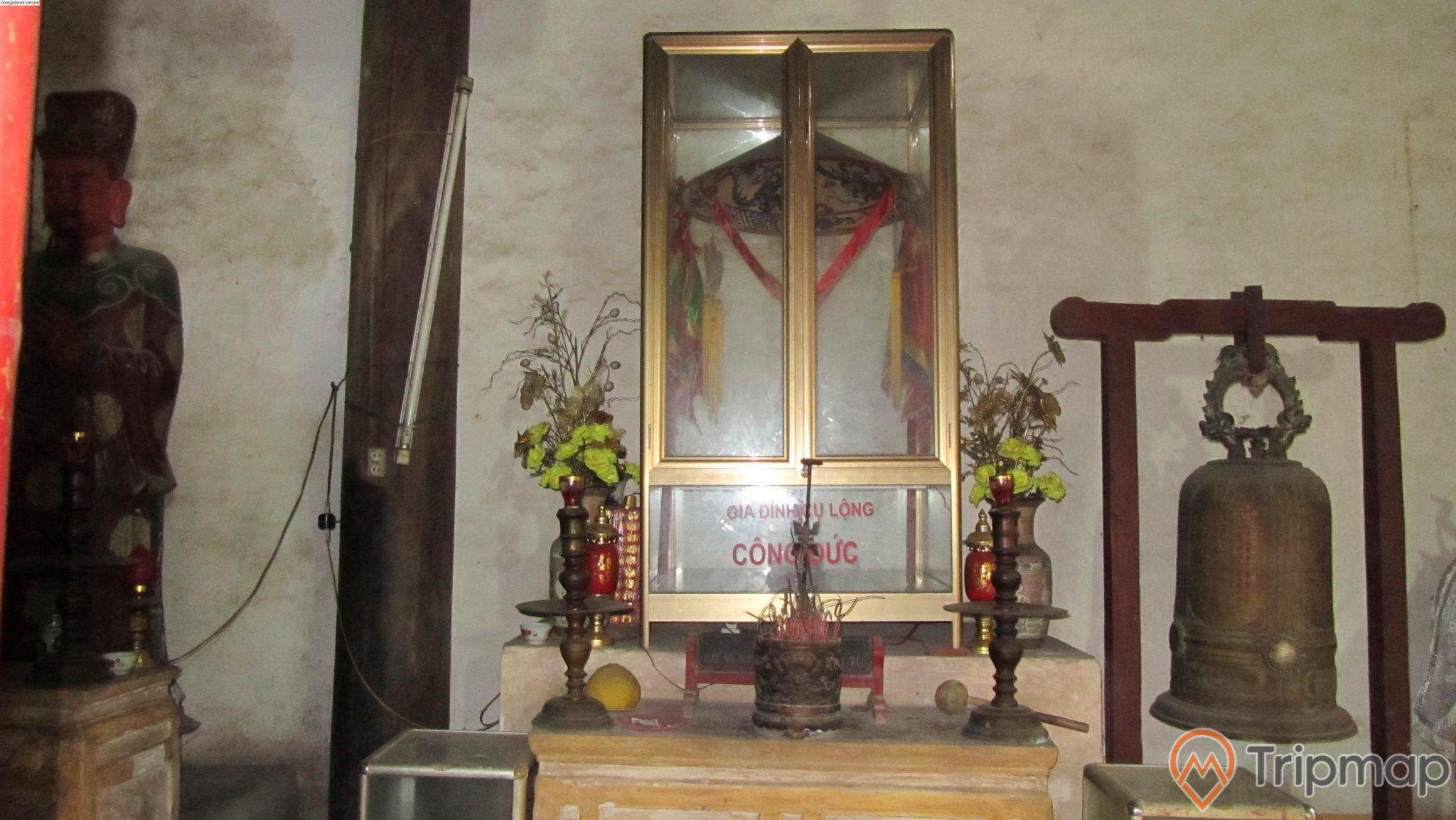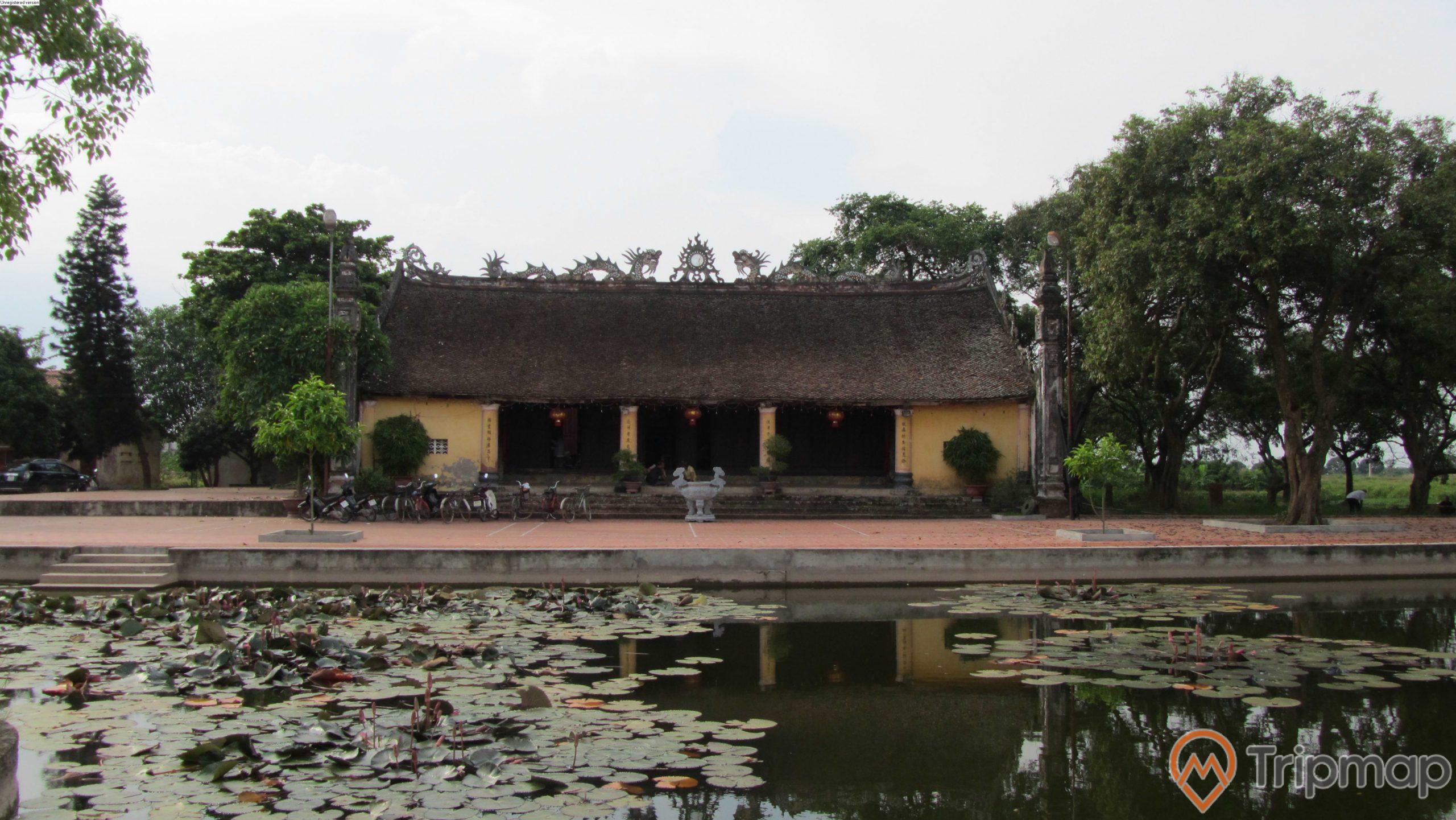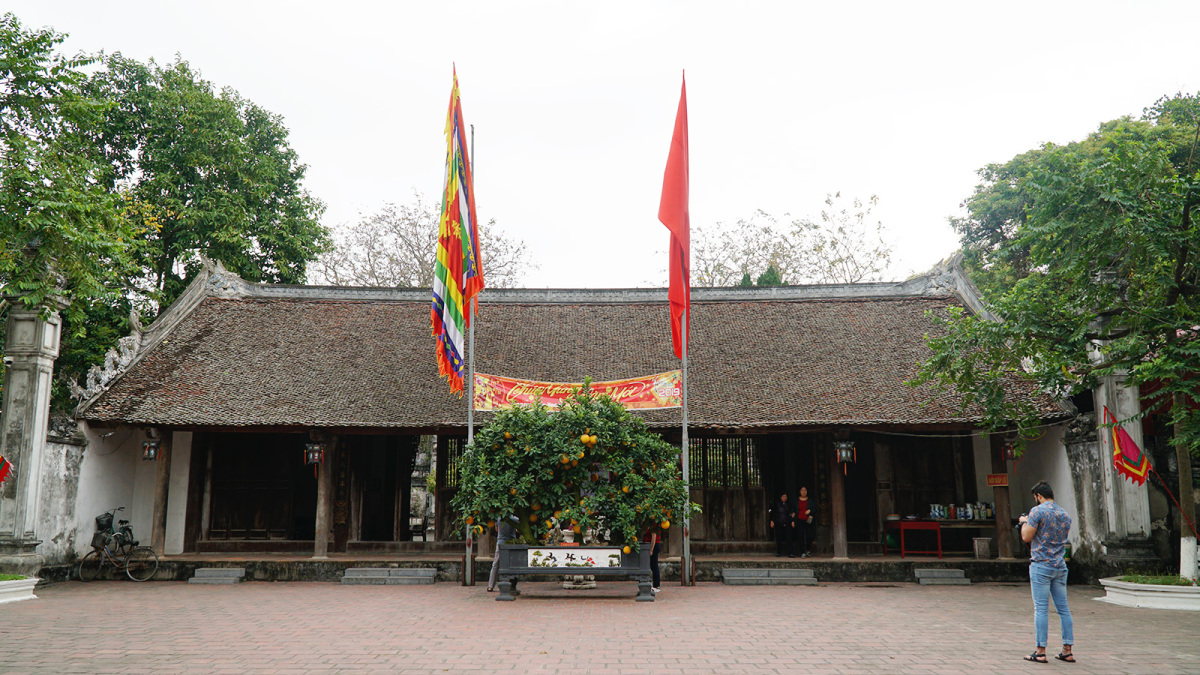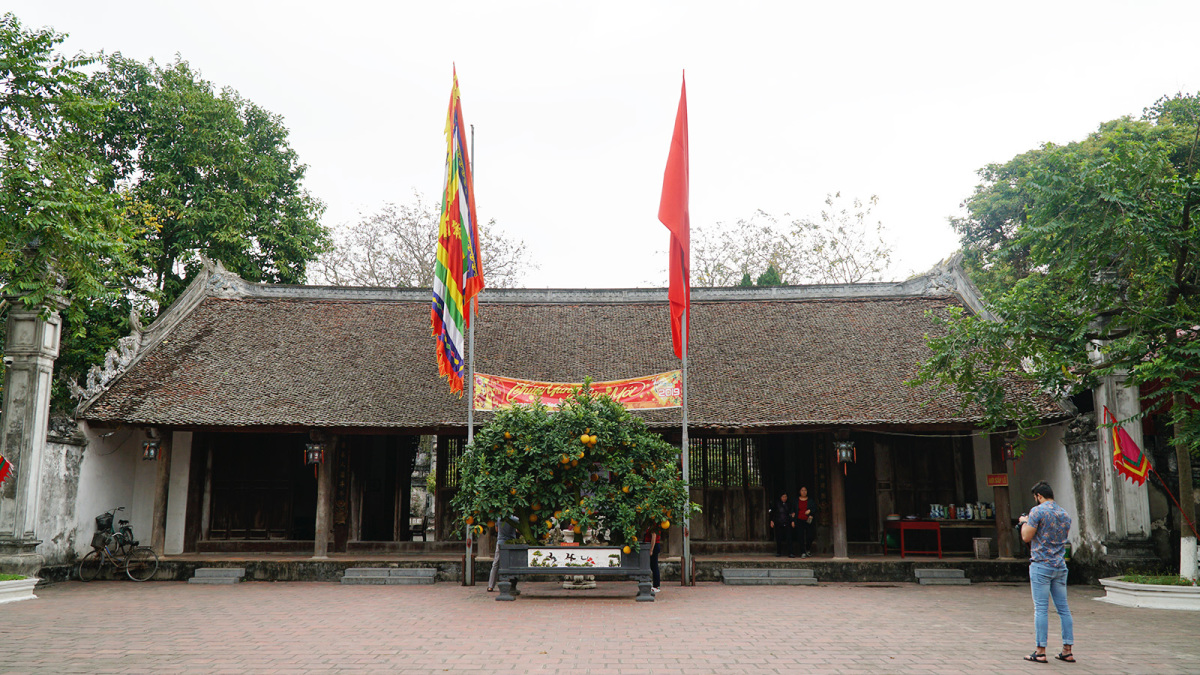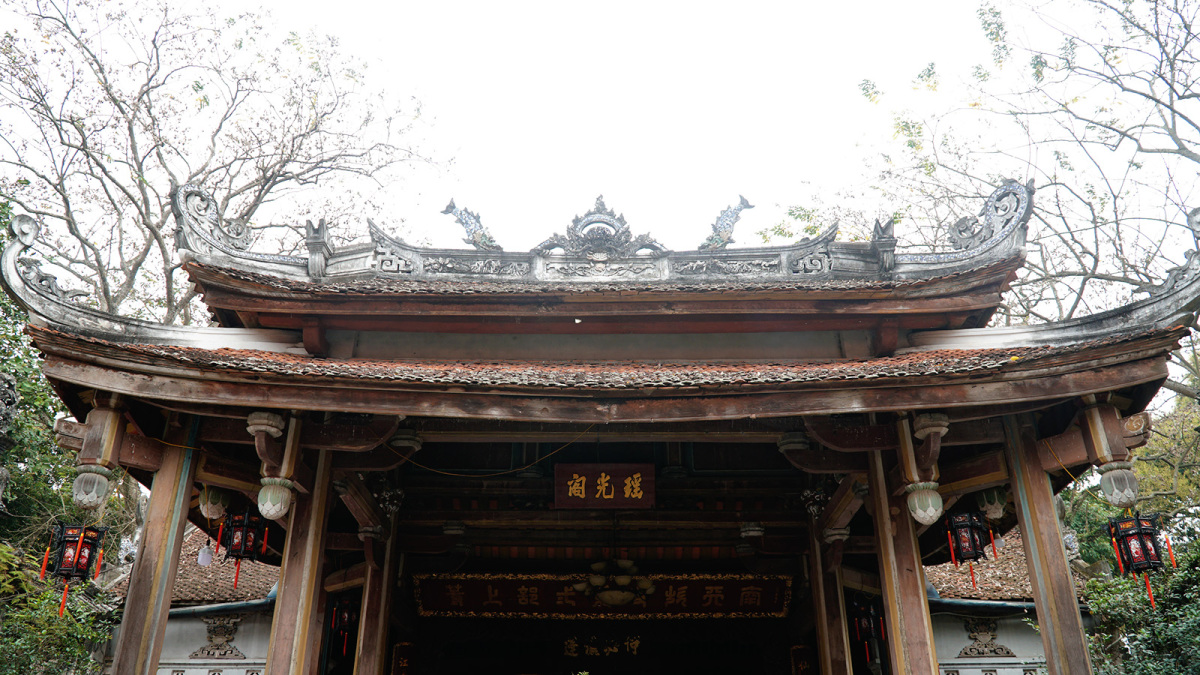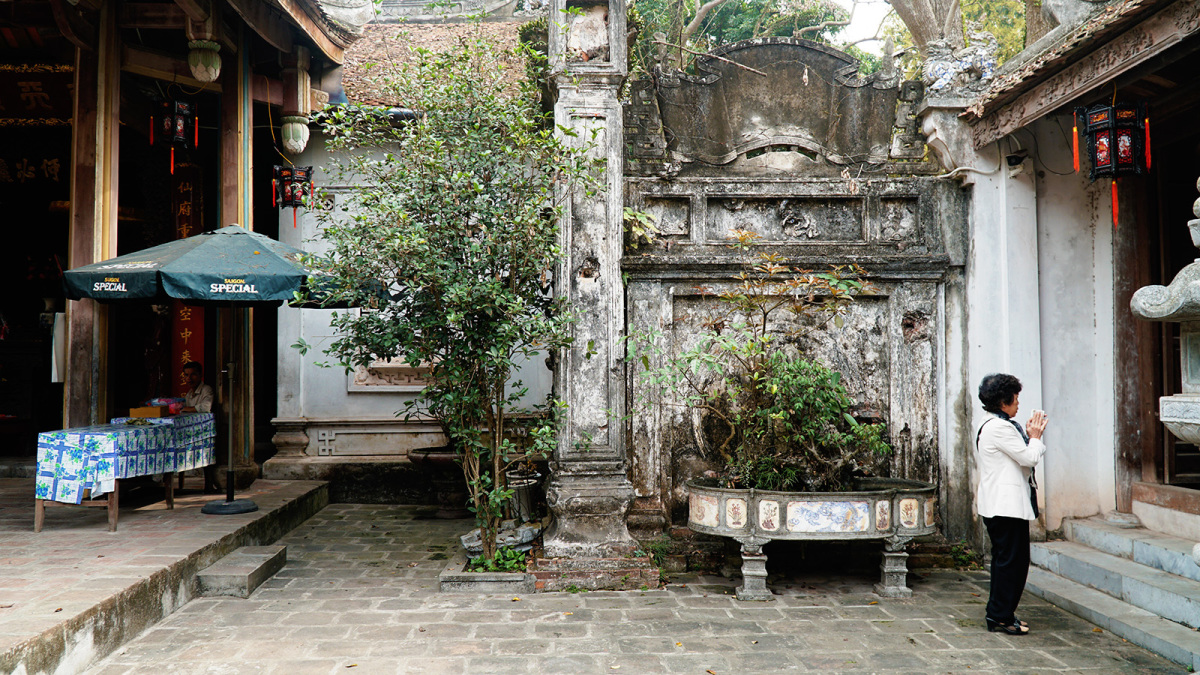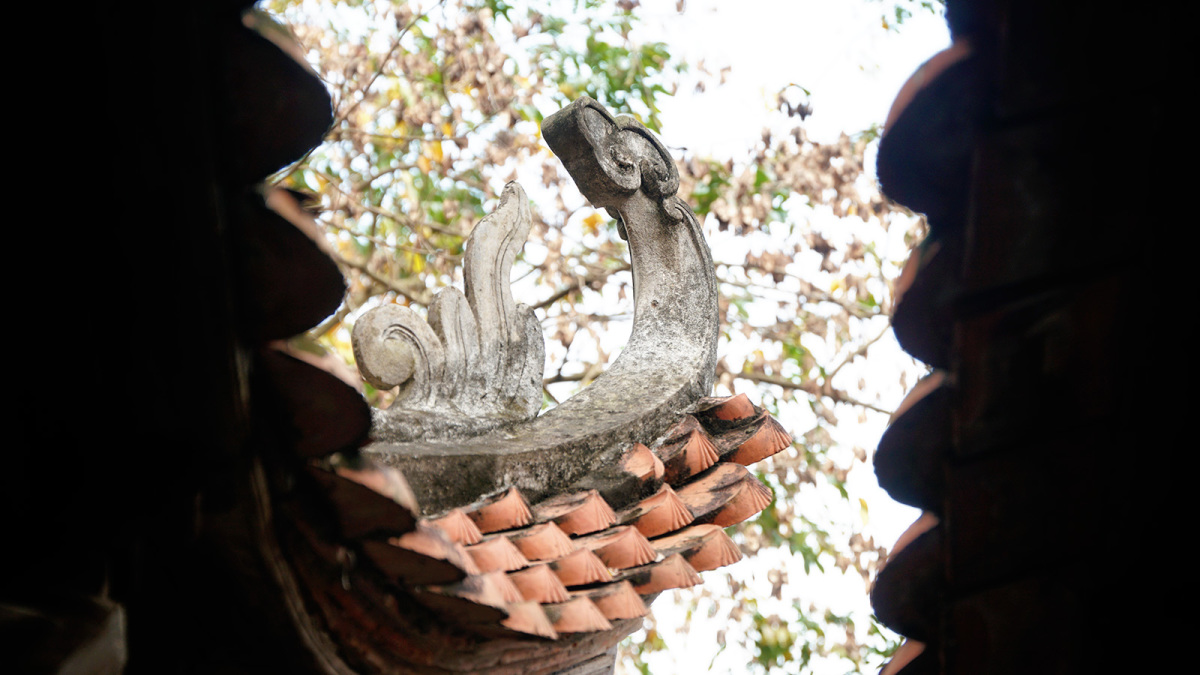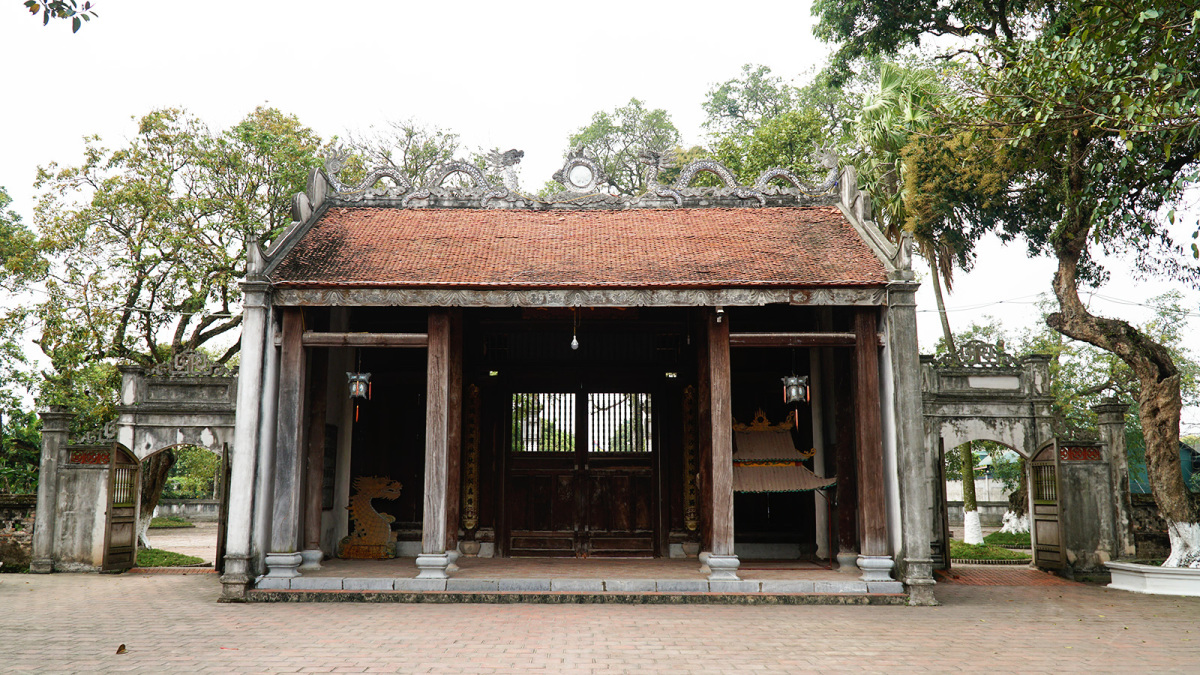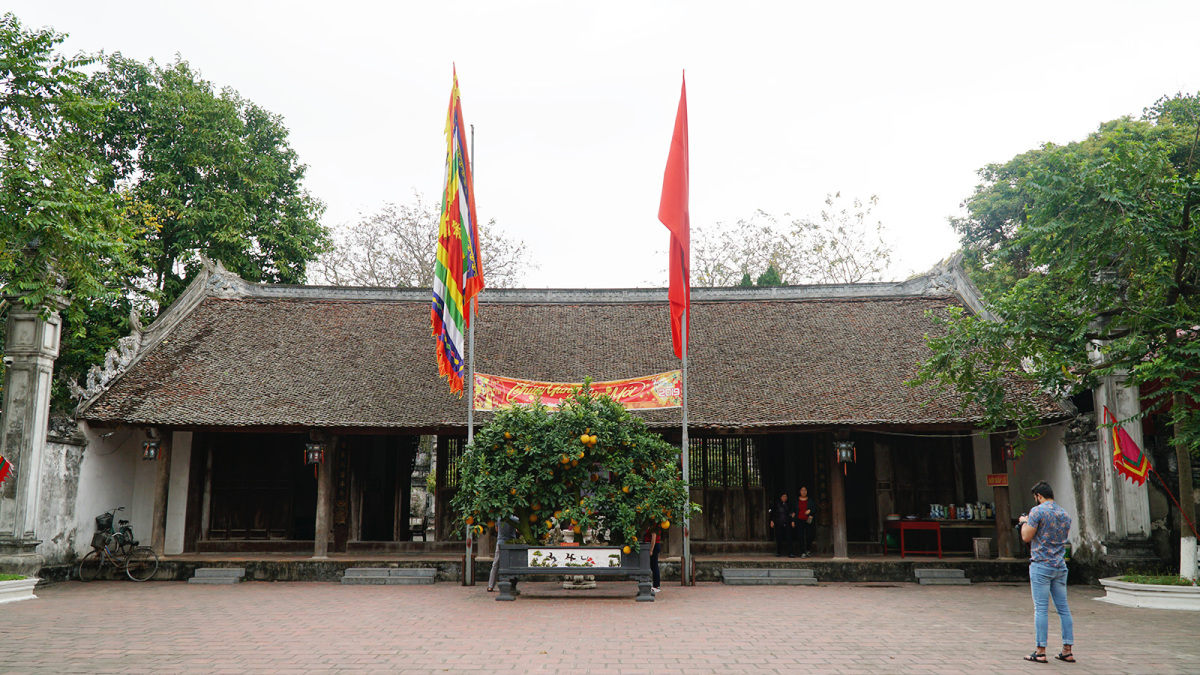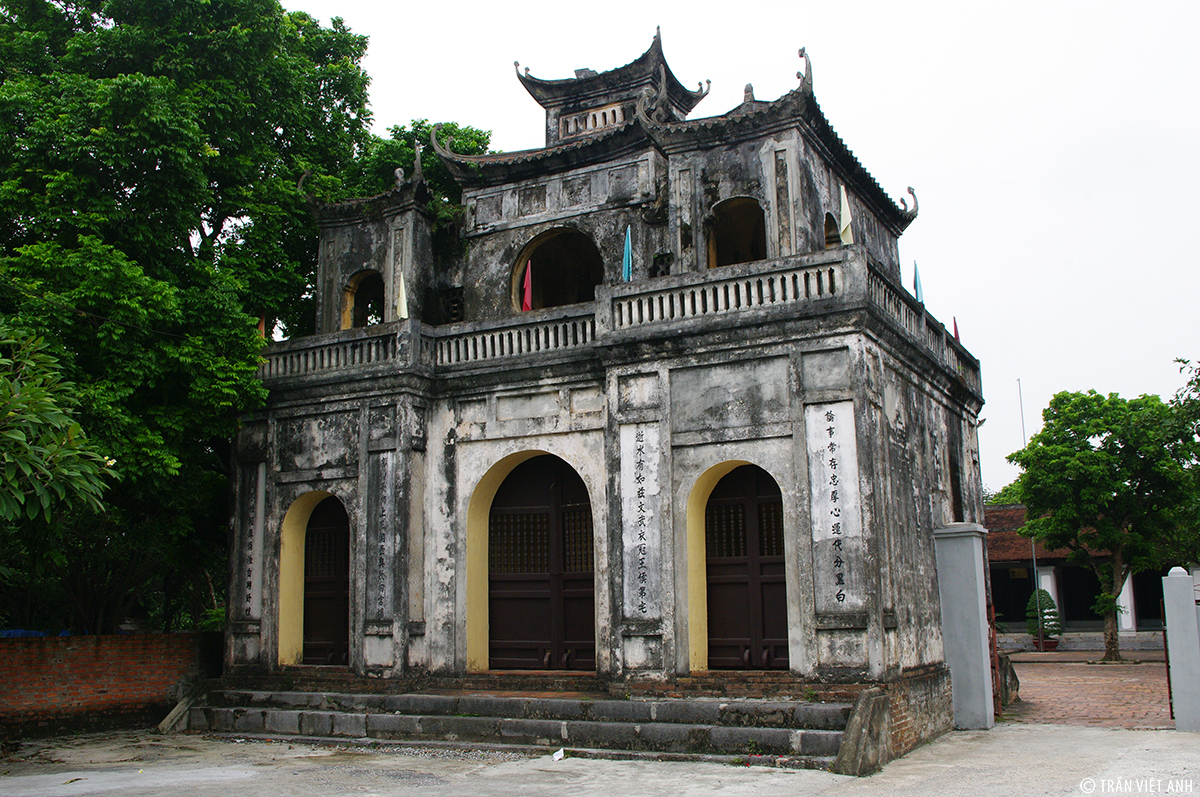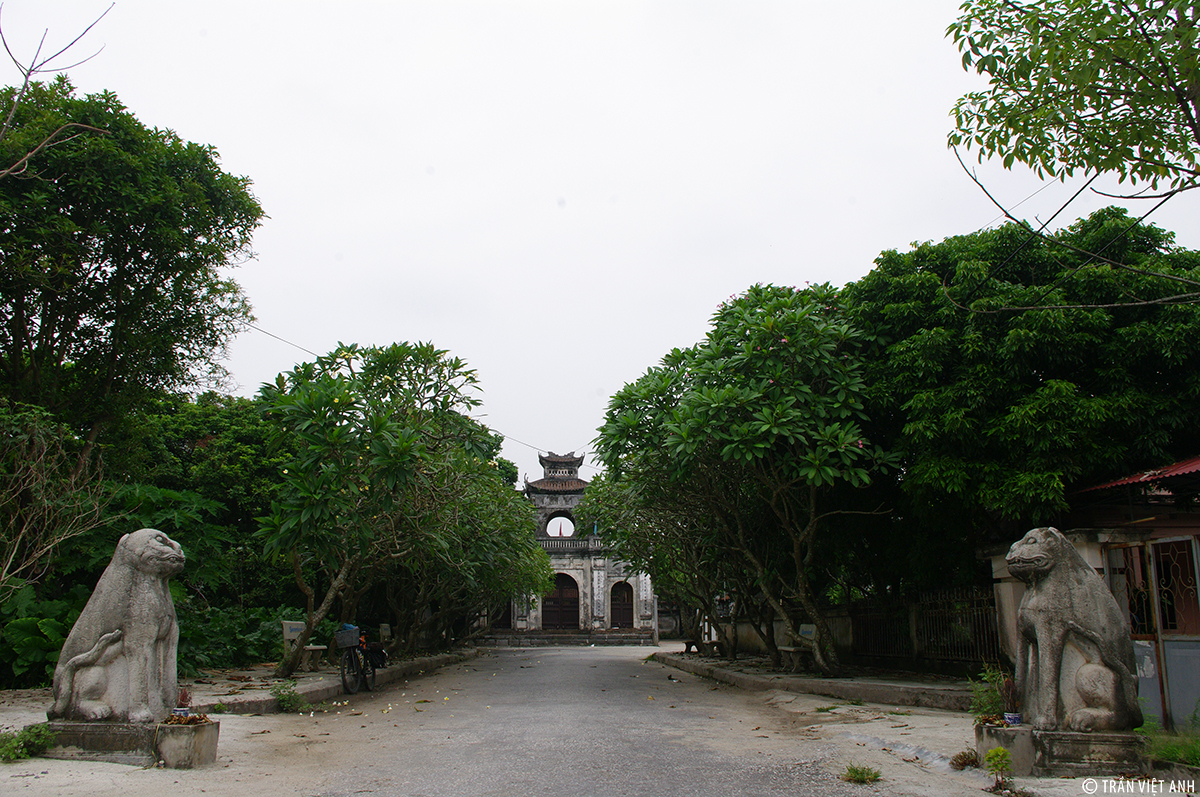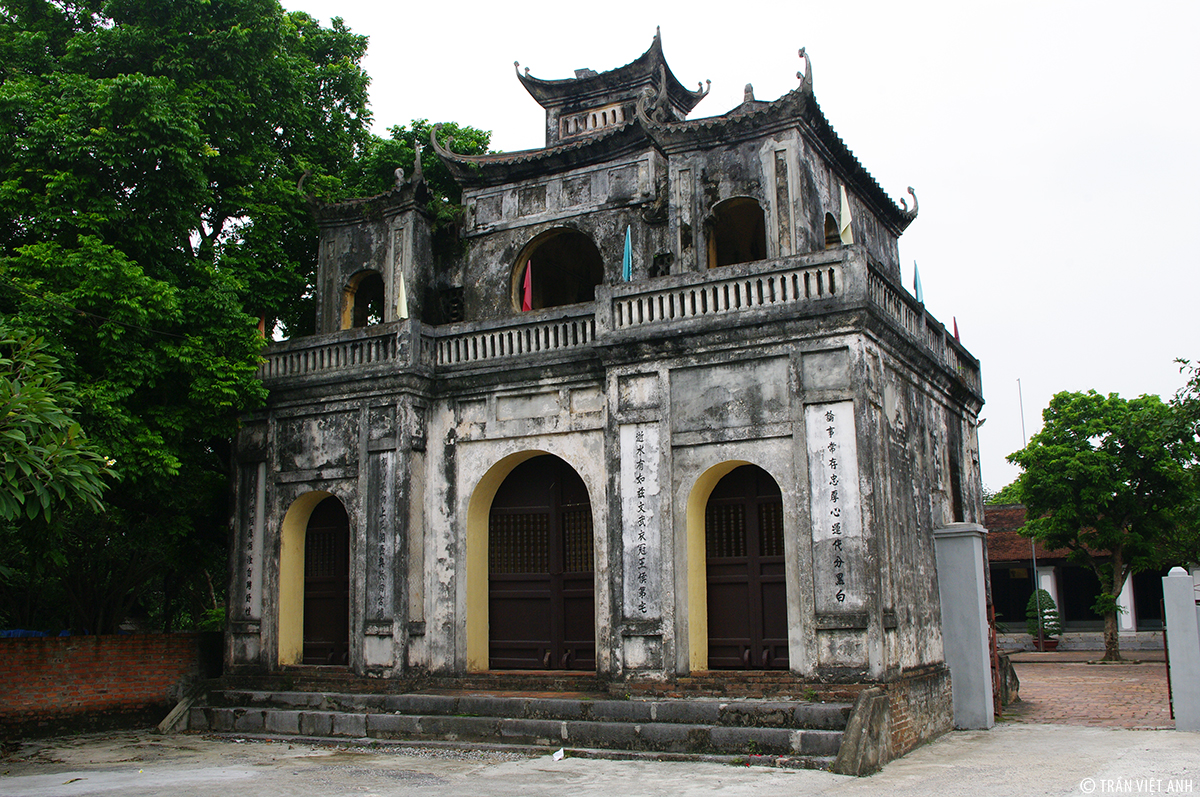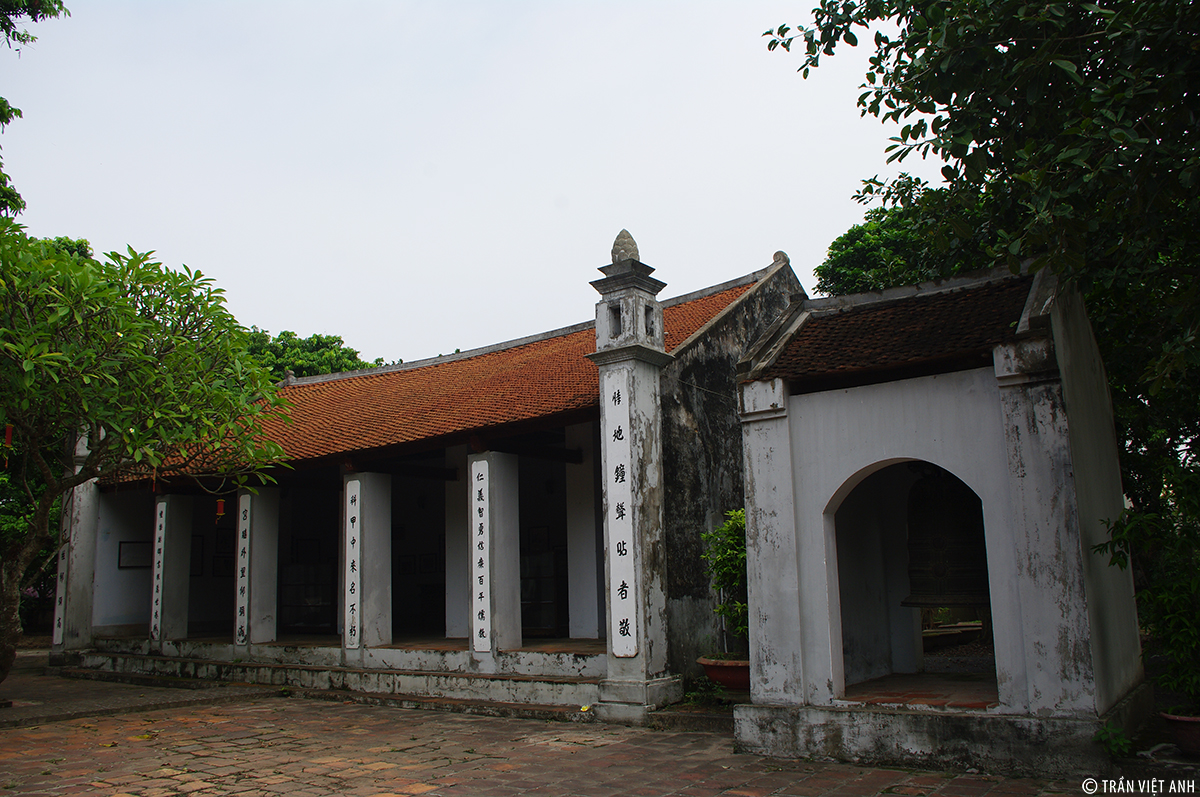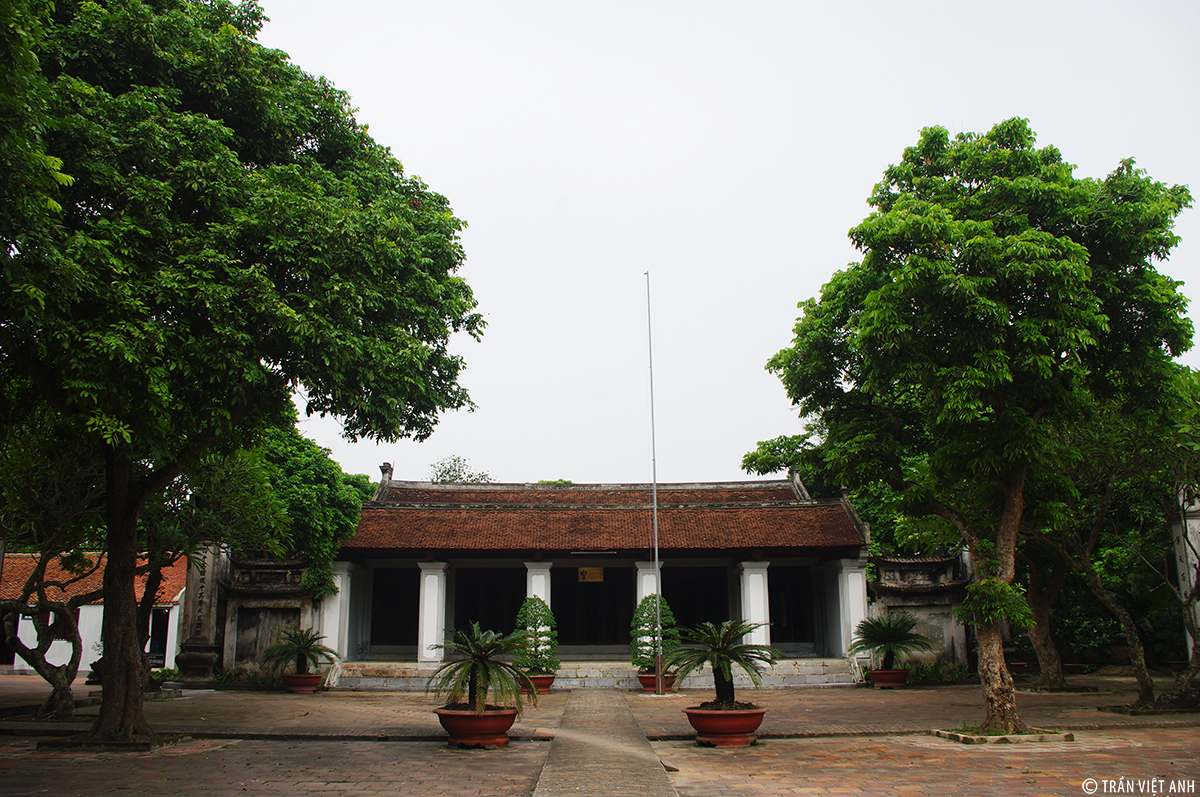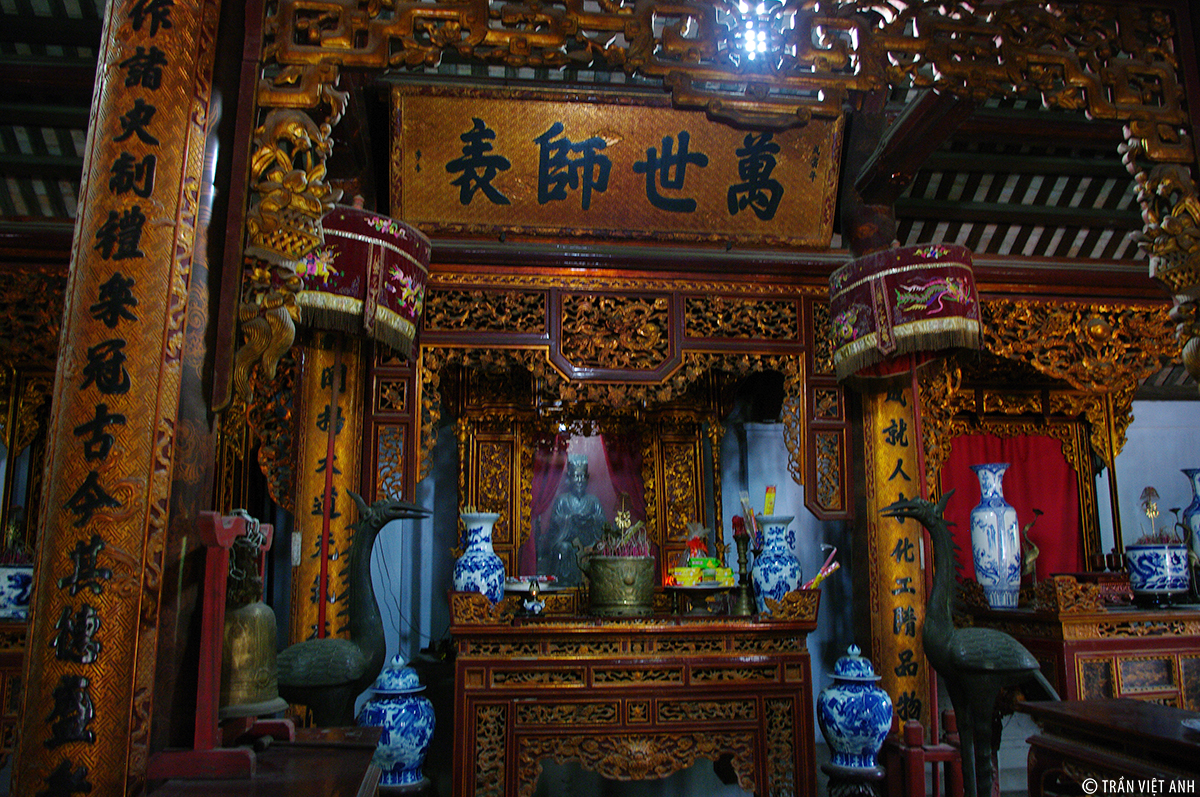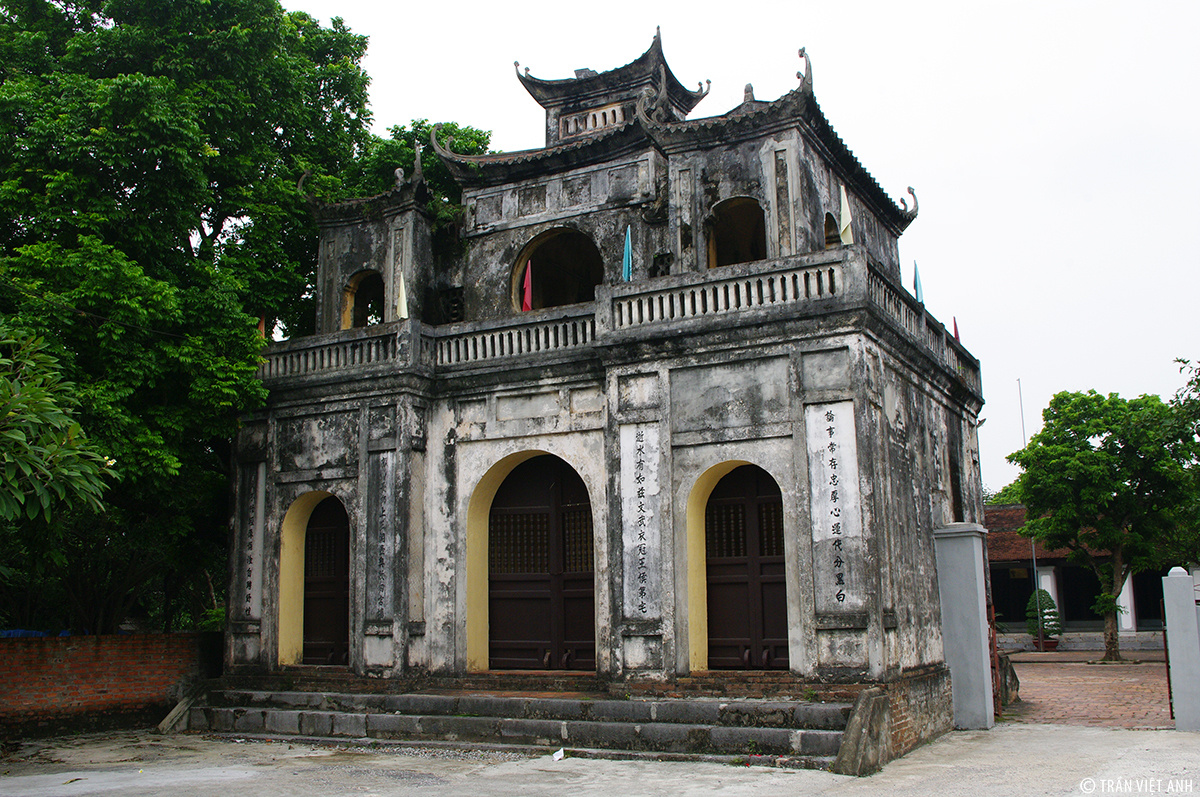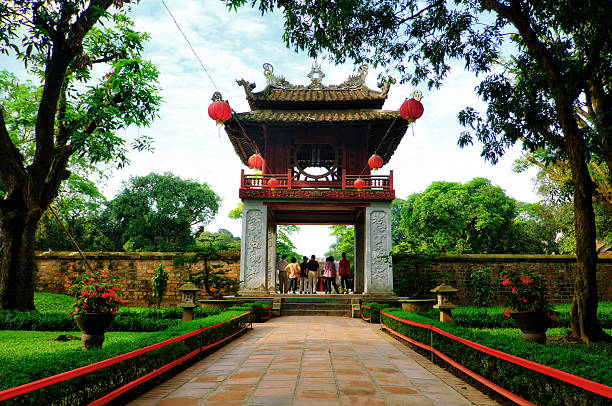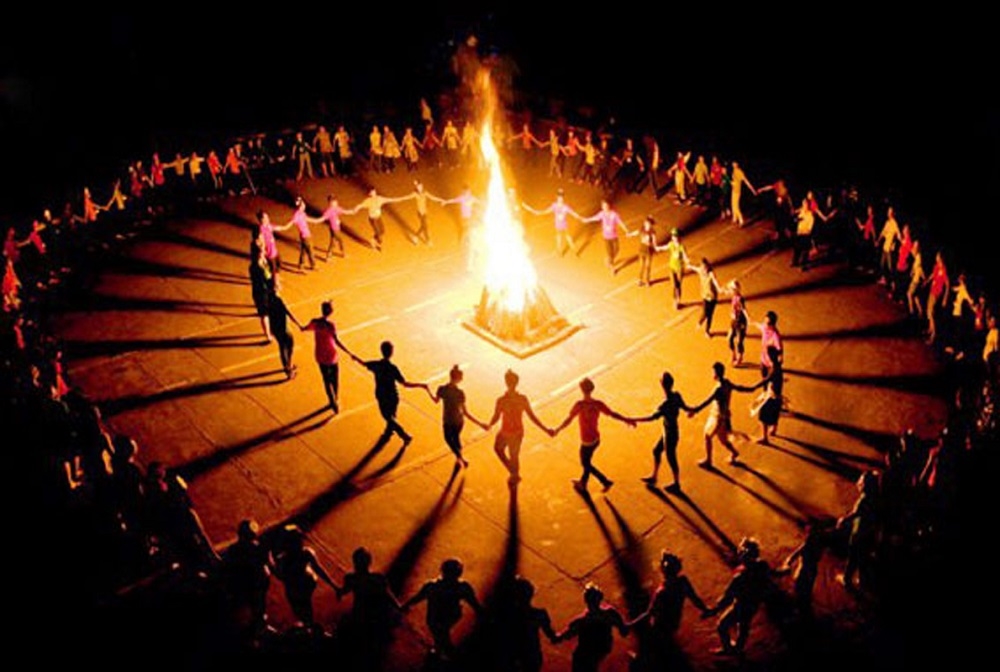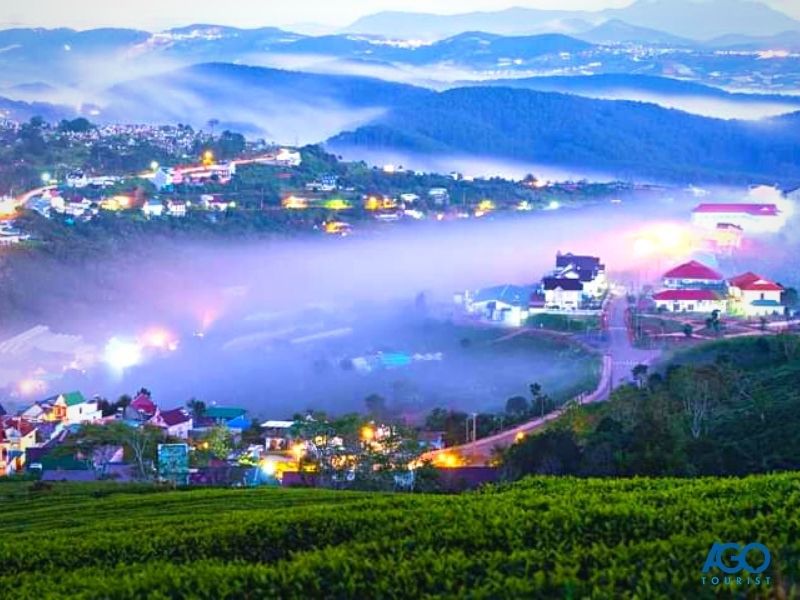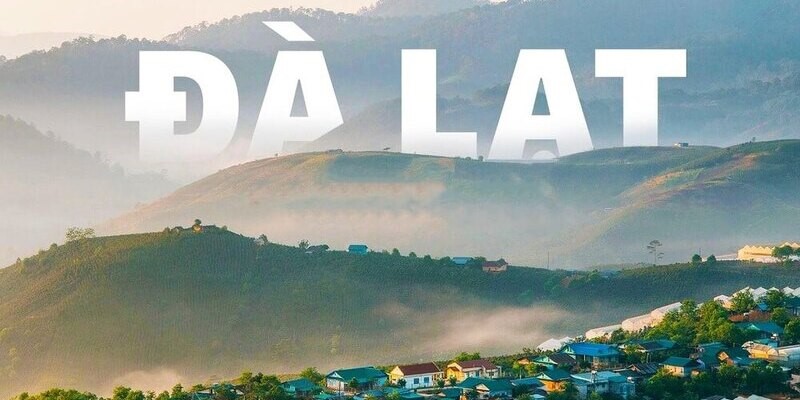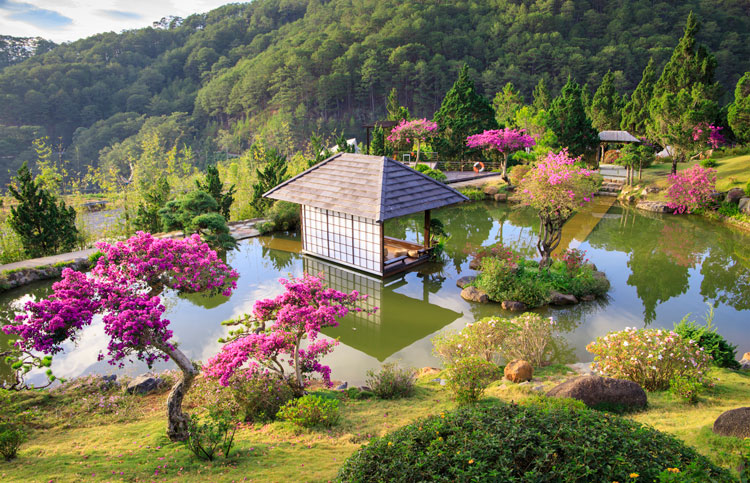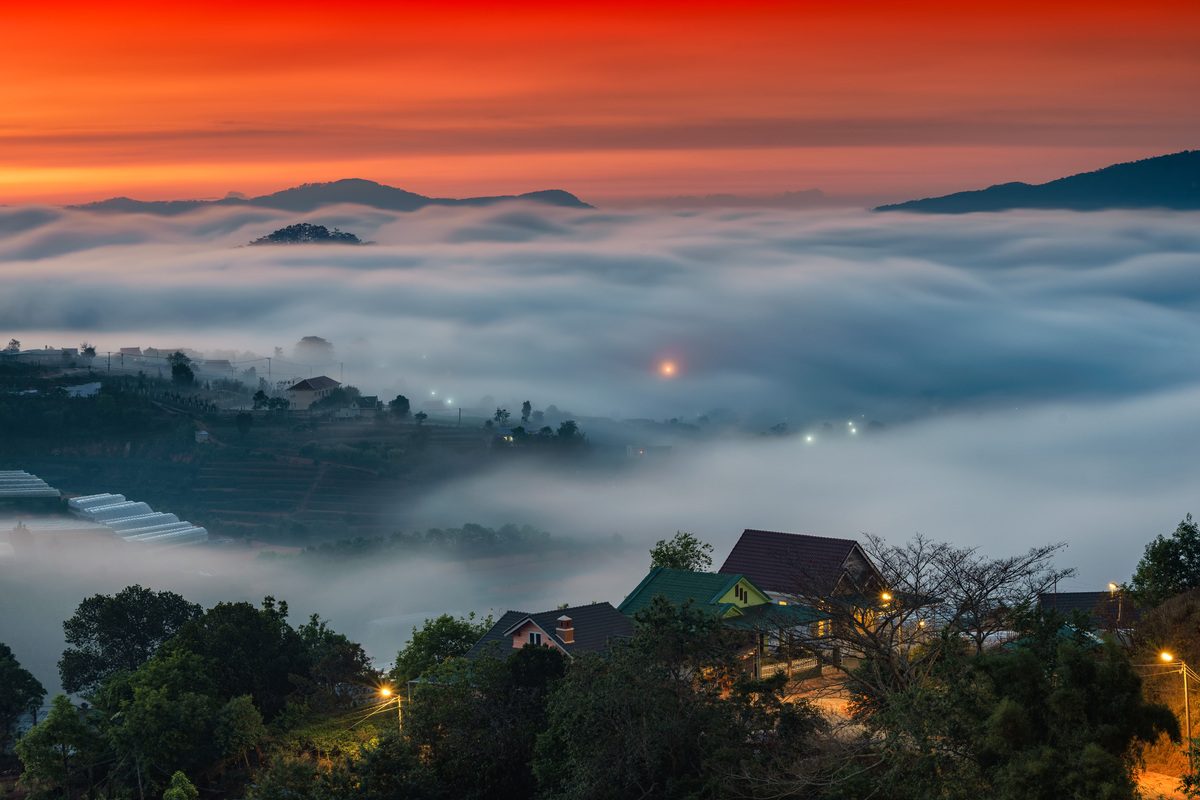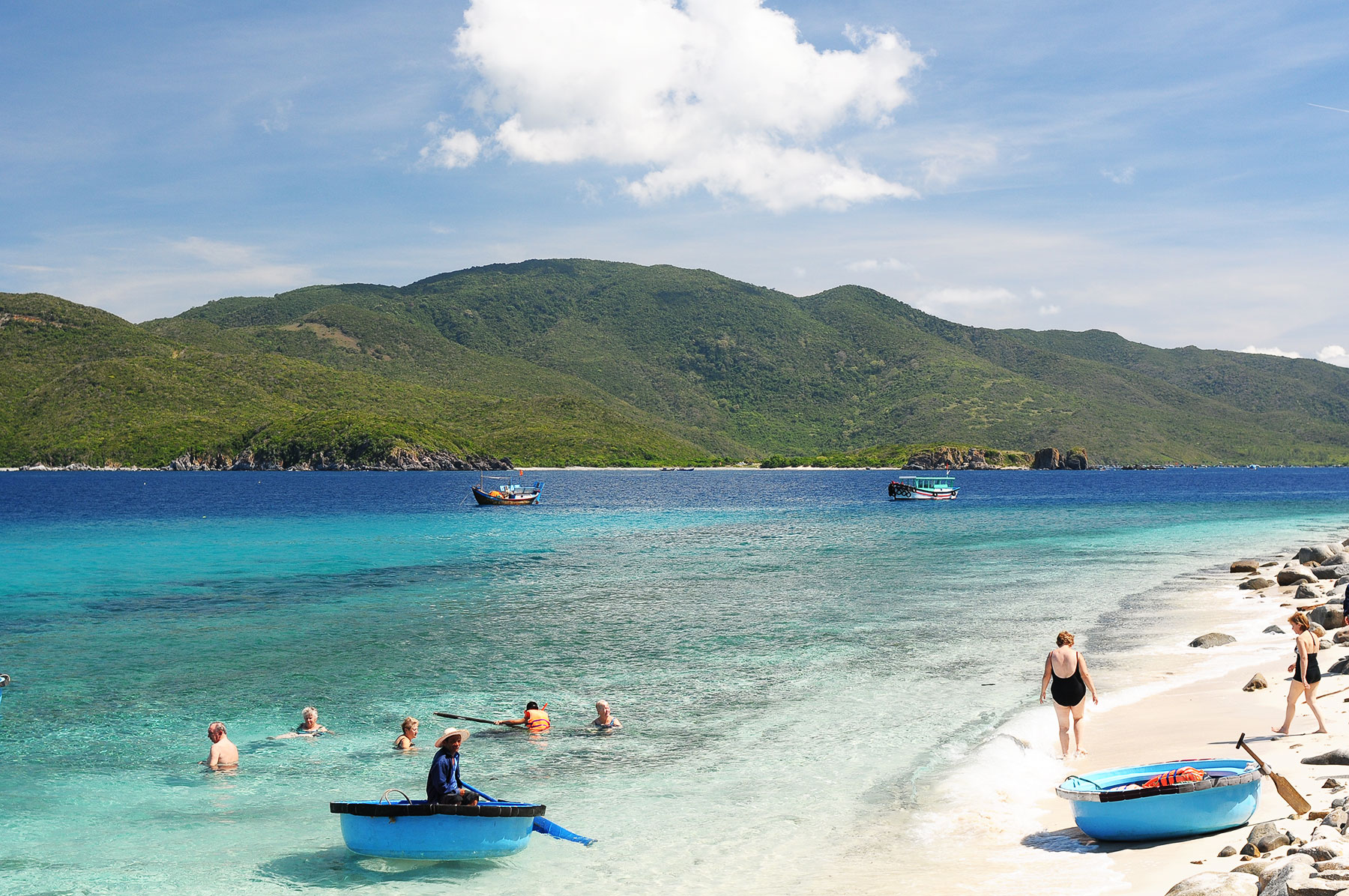The temple was built on a high, flat, rectangular area of land with an area of 18,720m². The temple's face faces west, looking straight at Tu Nhien beach (Ngu Doi village, Tu Dan commune) - where Princess Tien Dung, daughter of the 18th Hung King, met Chu Dong Tu and the two became husband and wife. The temple is divided into three zones. The outer area has an area of 7,200m², has no walls, the only architecture is a 2-storey stele house, 8 curved roofs, with doors opening in 4 directions. In the stele house, there is a stone stele with content about the time of restoration of Da Hoa temple and the fateful meeting of Chu Dong Tu - Tien Dung. From here, follow the 6m wide paved road with rows of ancient rice trees radiating cool shade on both sides, and you will reach the main gate. Through the main gate you enter the middle area. This area has an area of 3,400m², surrounded by low walls, planted with many green trees and divided into two areas: the right area has a bell tower, inside there is a 1.5m high bronze bell; The left area has a porch, inside there is a stone porch with a width of 1.2m; Separating these two areas is a tiled road leading from the main gate to Ngo Mon with three entrances and exits, above which hangs a large letter with four words painted in red and gilded with "Bong Lai Cung Khuc". Stepping through the Ngo Mon gate is to enter the inner area. With an area of 11,520m², the architecture is in the royal style of the Nguyen Dynasty but has a harmonious combination of Buddhism, Confucianism, and Taoism. The inner area includes: a courtyard, a worship house, an adoration yard, an incense burner, and a palace. second palace, third palace and harem. Connecting the palaces are the hermitage, the tarpaulin, the horse house, the artillery house... In the harem there are 3 shrines: Saint Chu Dong Tu (in the middle), Princess Tien Dung Queen (left), concubine Hong Van – Tay Sa (right). The overall architectural works in this area include 18 houses with curved tile roofs shaped like 18 stylized dragon boats. This is a special architecture to recreate the scene of Princess Tien Dung's boat sailing on the river wharf in the past. In addition to its unique architecture, Da Hoa Temple also preserves many rare relics, typically: 3 wooden altar thrones dating from the late 17th and 18th centuries. These are considered the oldest thrones still found. seen in our country today; pair of ceramic Bach Tho jars (one hundred Tho words, none of which are similar, are engraved on the side of the jar)... Leaving Da Hoa temple, visitors will go to Da Trach temple (Yen Vinh village, Da Trach commune), a place associated with the legend of Da Trach lagoon. Legend has it that at the location of Chu Dong Tu and his two wives, princesses Tien Dung and Hong Van, "transformed" into the sky on the night of the 17th day of the 11th lunar month, they collapsed into a large lagoon, Da Trach lagoon (the lagoon was formed). after just one night). Thinking that it was a divine response, local people built a temple to worship the three gods in the Da Trach lagoon area and named it Da Trach temple, also known as Hoa temple. Da Trach Temple has been restored many times, however, the current architecture is the result of the restoration in 1890 with the character Cong (工), facing east, overlooking a semi-circular lake, the roof is carved with many dragon shapes, The phoenix is very beautiful, consisting of three rooms. Among them, the harem is the most beautifully designed space with a three-step rolling dome, giving visitors the feeling of standing in a boat cabin. From the outside, on the right, first is the altar for worshiping the temple, the statue of military mandarins, then the altar for worshiping the parents of Saint Chu Dong Tu; On the left is the altar of Be Nguoi Quan Quan (a statue of a carp made of wood painted with lacquer and gilded with shiny gold), next is the altar of Trieu Viet Vuong (548 - 571). In the middle of the harem are 3 altars: Thanh Chu Dong Tu (in the middle), Princess Tien Dung Queen (left), concubine Hong Van (right). There are also statues of two horses, one red, one white. Legend has it that those were the two horses that Saint Chu Dong Tu and his two wives rode to heal the people. In addition to the main architecture, in the temple area there is also a bell tower, inside is placed a Da Trach bell (Da Trach temple bell) cast in the 14th year of Thanh Thai (1902), 1.5m long, 0.8m wide; two rows of nine-room houses. Previously, this was the place for nine palanquins; two stone stele standing opposite each other (one stele is broken), built in the 17th year of Gia Long (1819), 1.6m high, 0.8m wide, 0.17m thick; a semicircular lake; Many horizontal panels and parallel sentences record the legend of Chu Dong Tu - Tien Dung - Tay Sa; especially the image of a hat and a stick - two objects that Saint Chu Dong Tu used to save humanity. Da Trach Temple was recognized by the State as a national historical architectural and artistic relic in 1989. To remember the merits of Saint Chu Dong Tu and Princess Tien Dung, every year, local people organize the Chu Dong Tu festival. This is one of the 16 largest festivals in the country with attractive cultural and sports activities. The most unique is the water procession with the participation of 10 boats following each other to the Red River to take water for Holy Mass at Da Hoa and Da Trach temples. This activity is organized according to ancient customs, taking place for two hours. While the boats move, there is also a dragon dance performance on the boat.
Hung Yen 1388 view From January to December
Ngày cập nhật : 11/03/2023


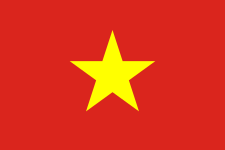 vn
vn en
en ja
ja ko
ko zh
zh


















